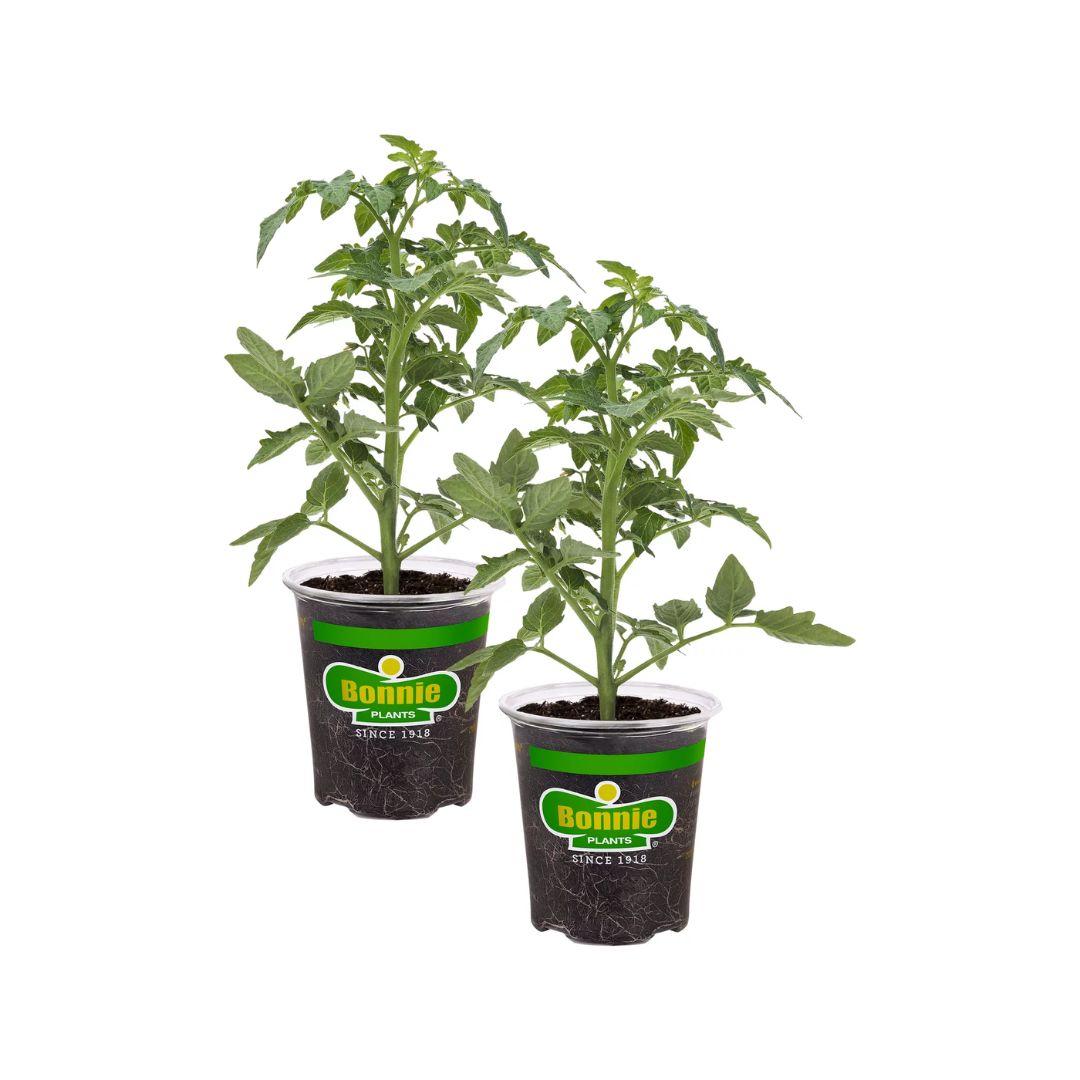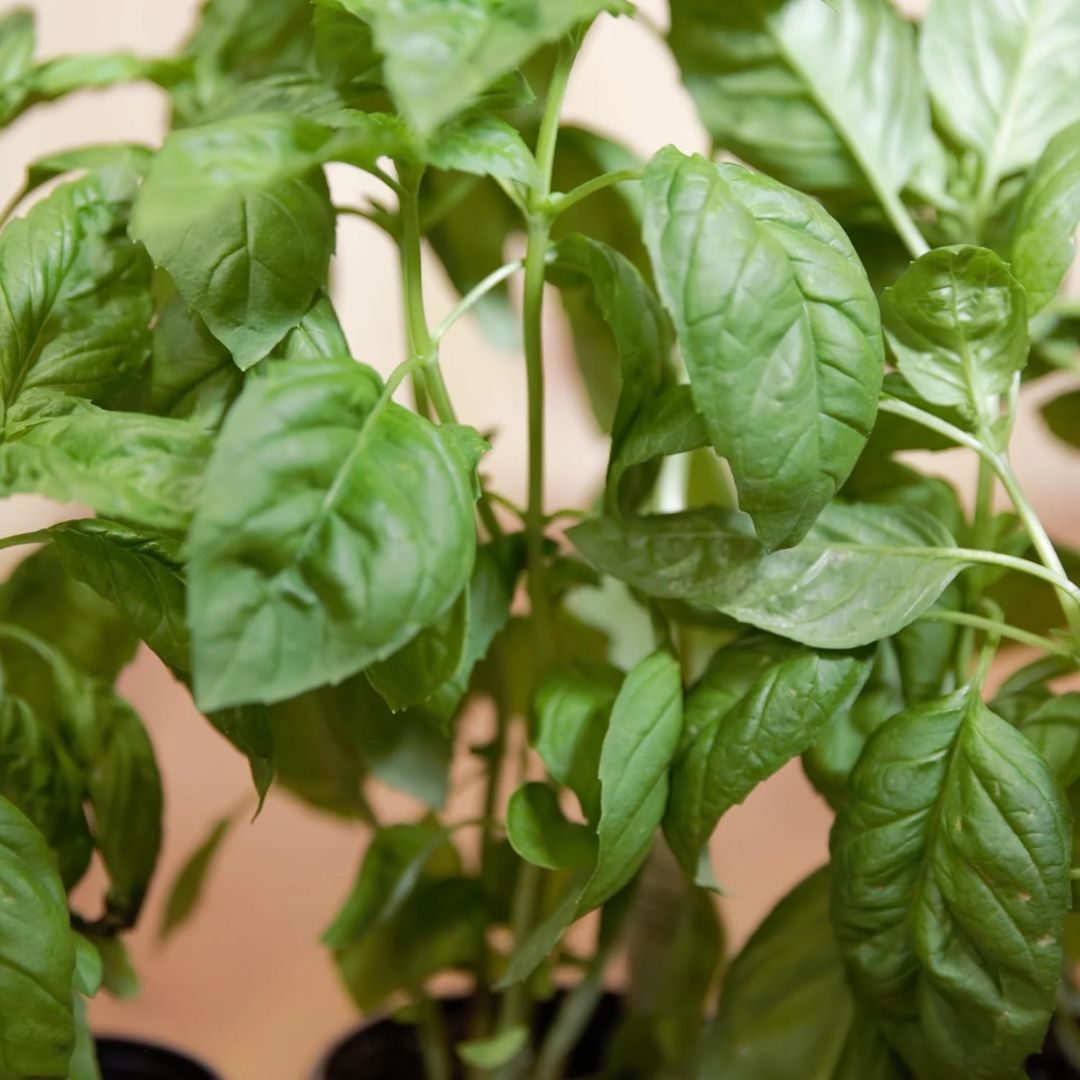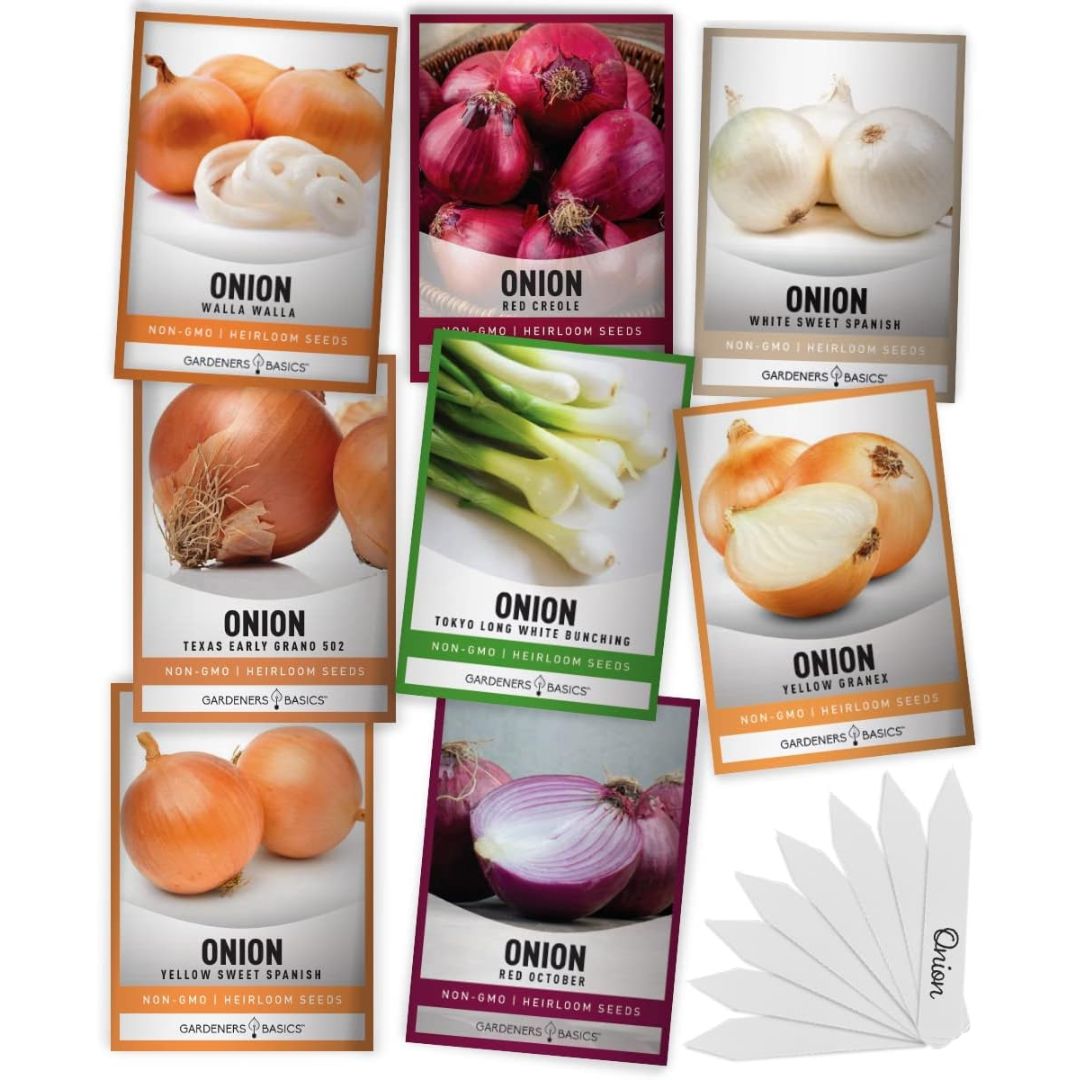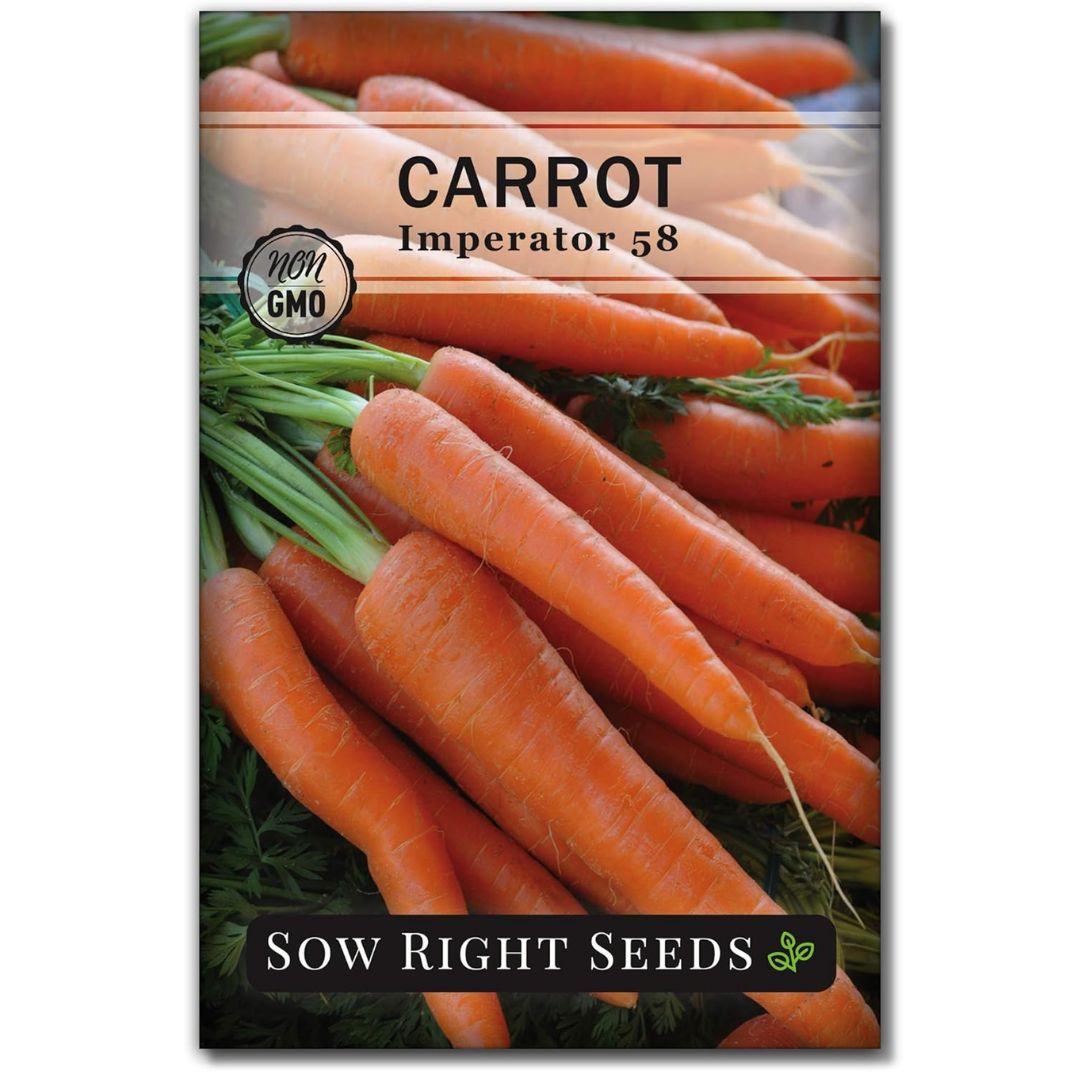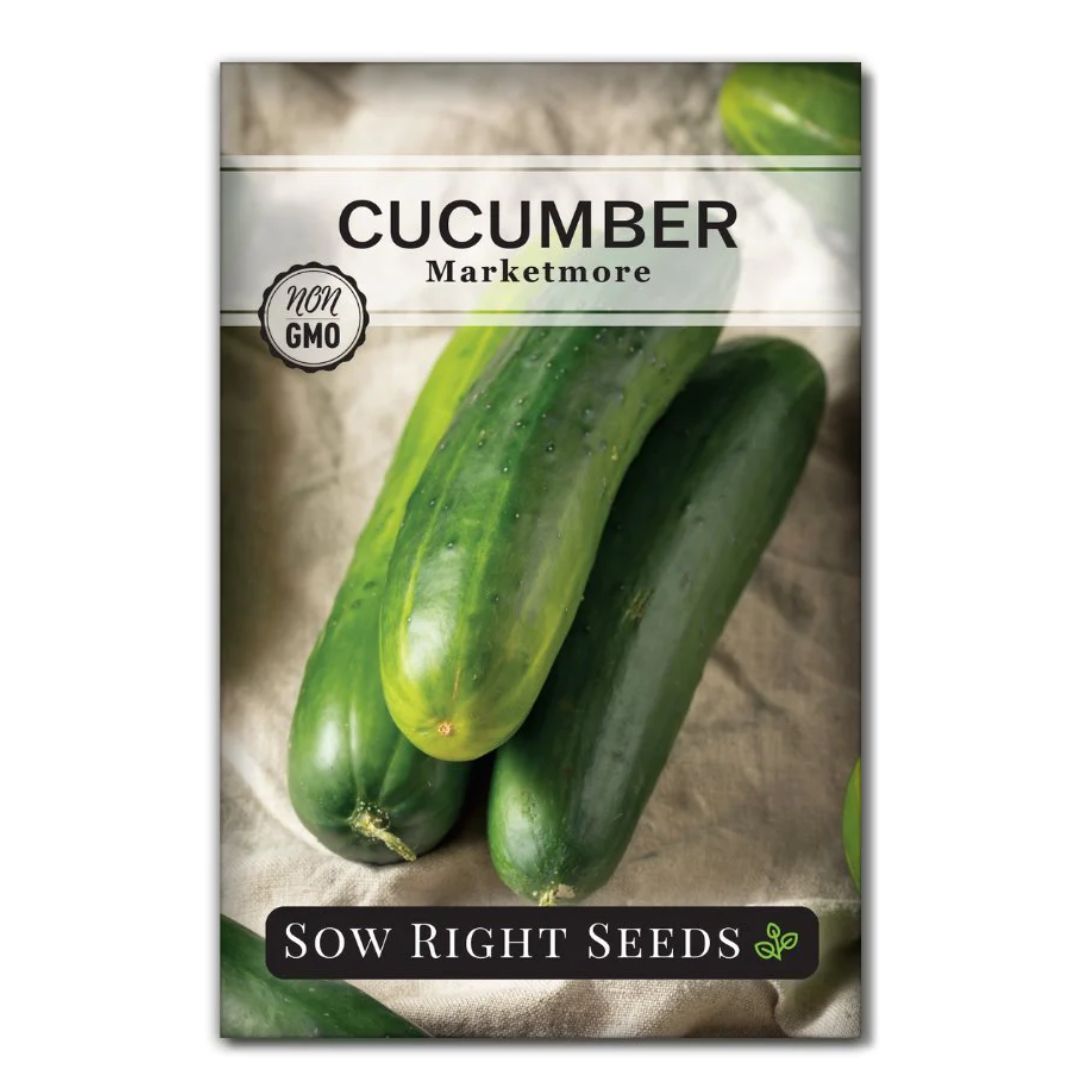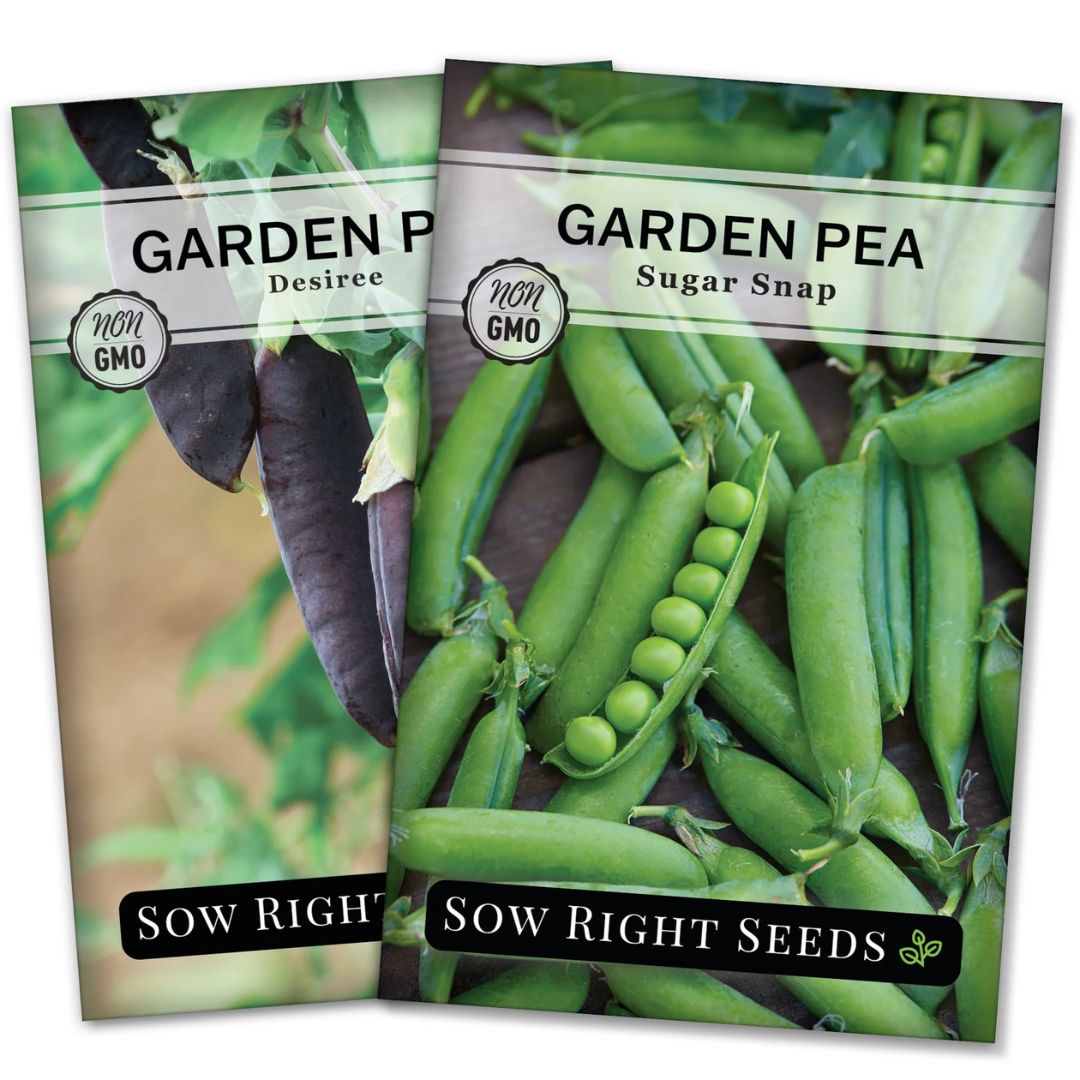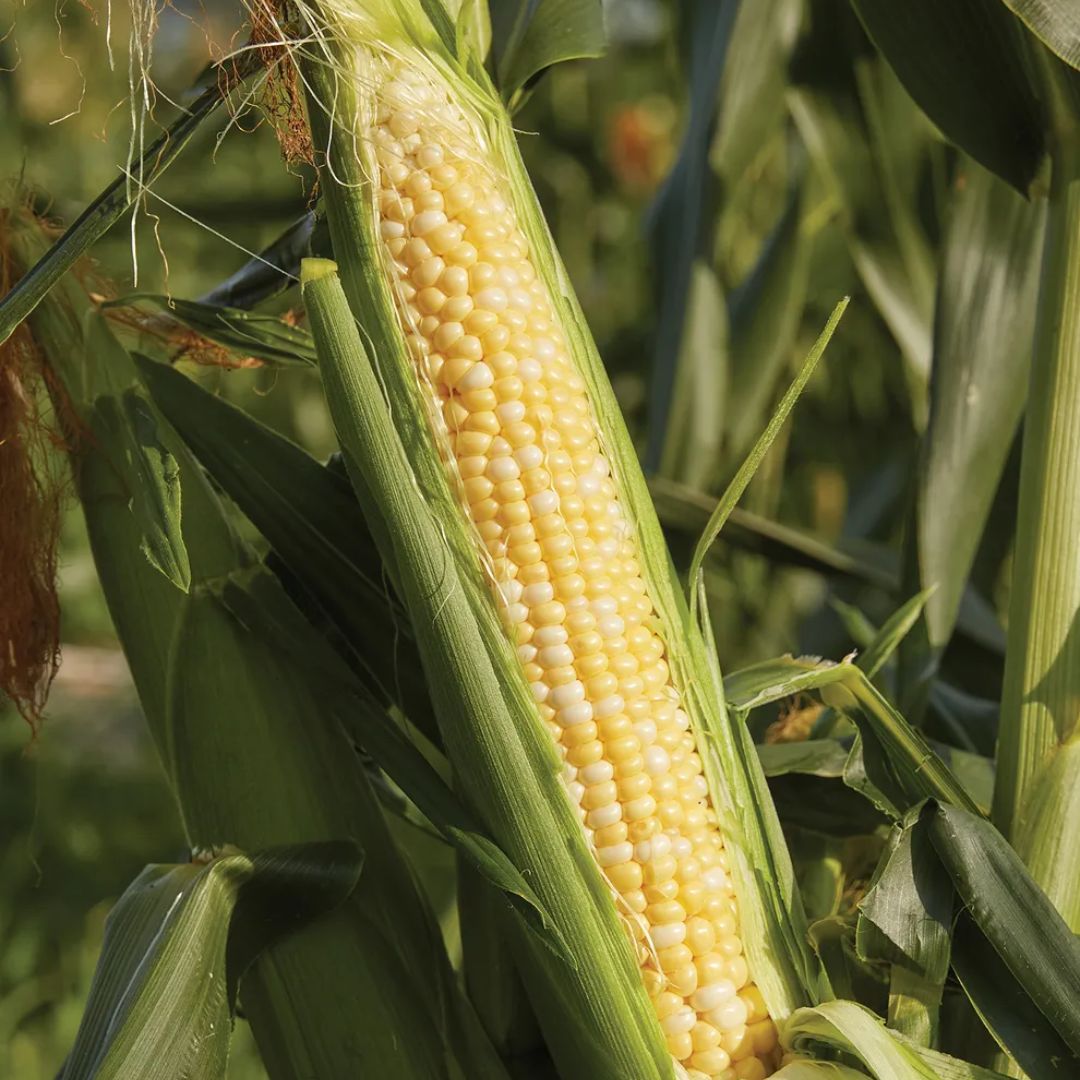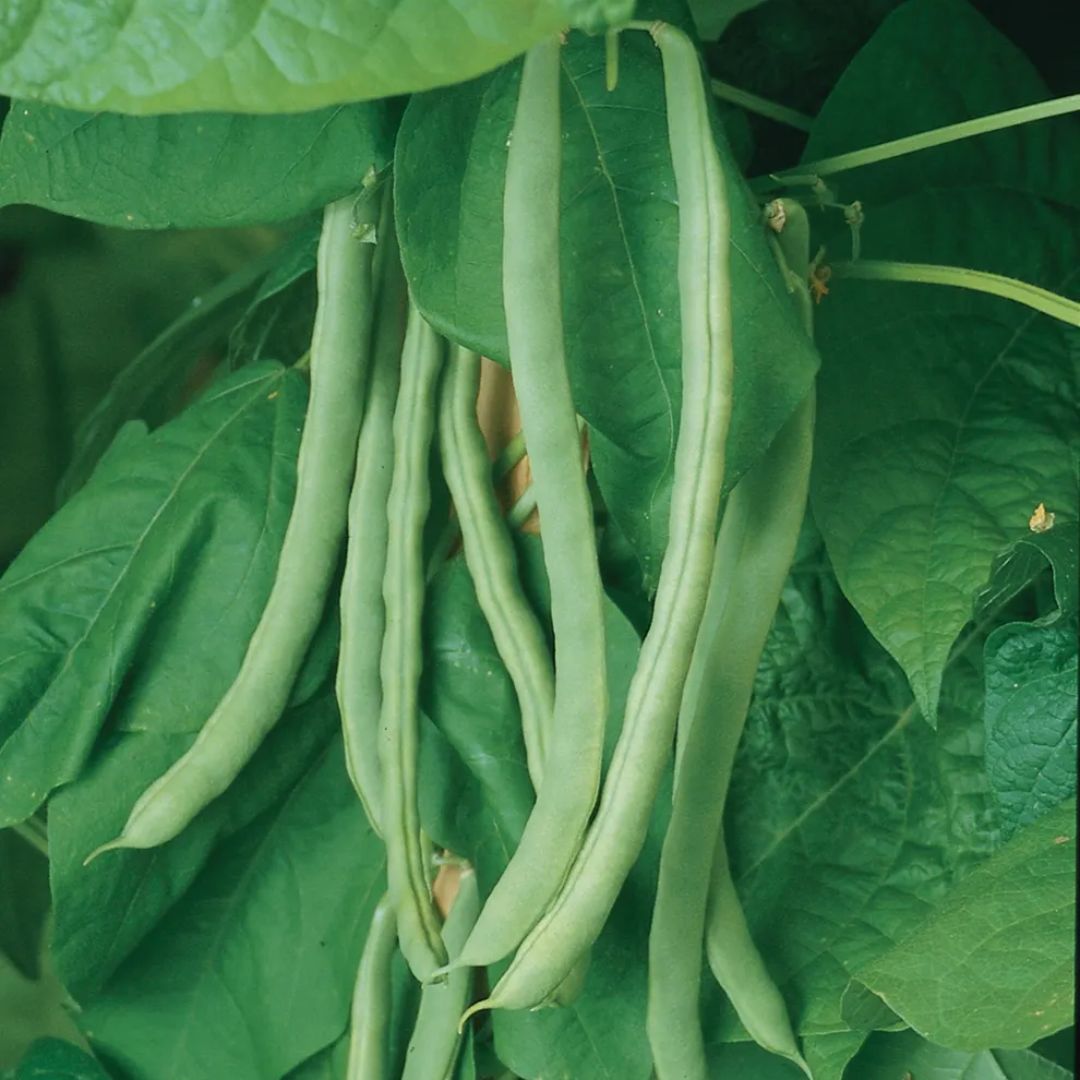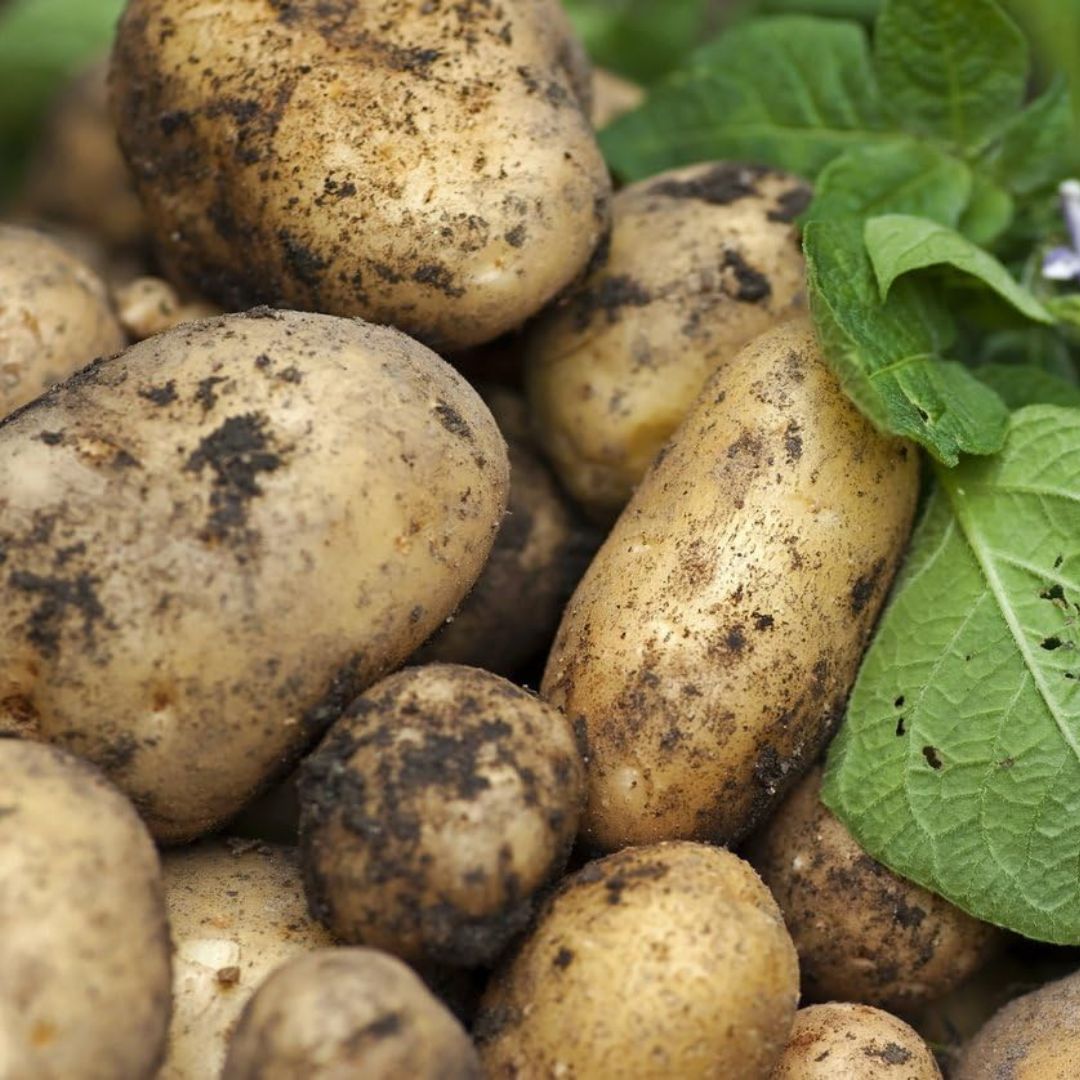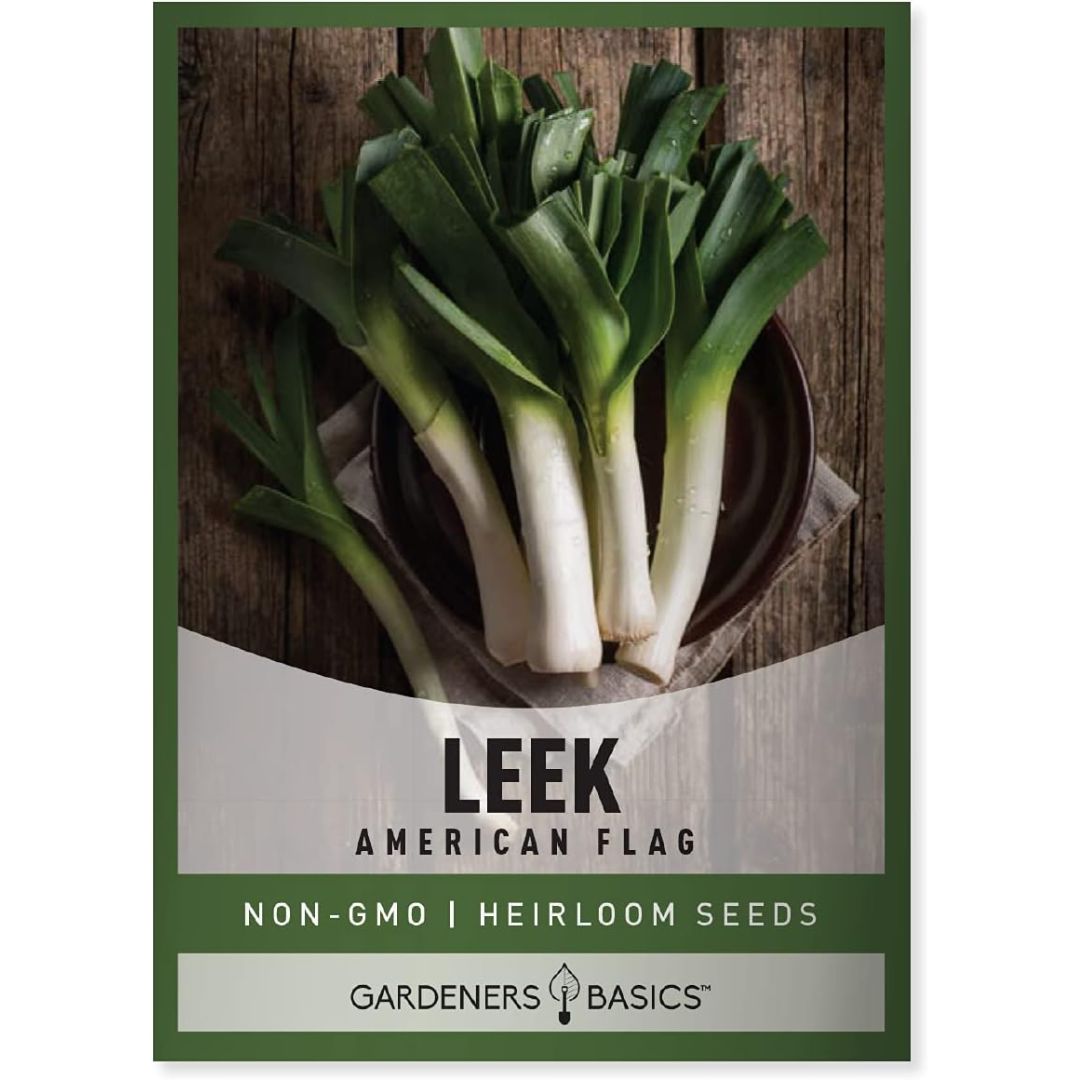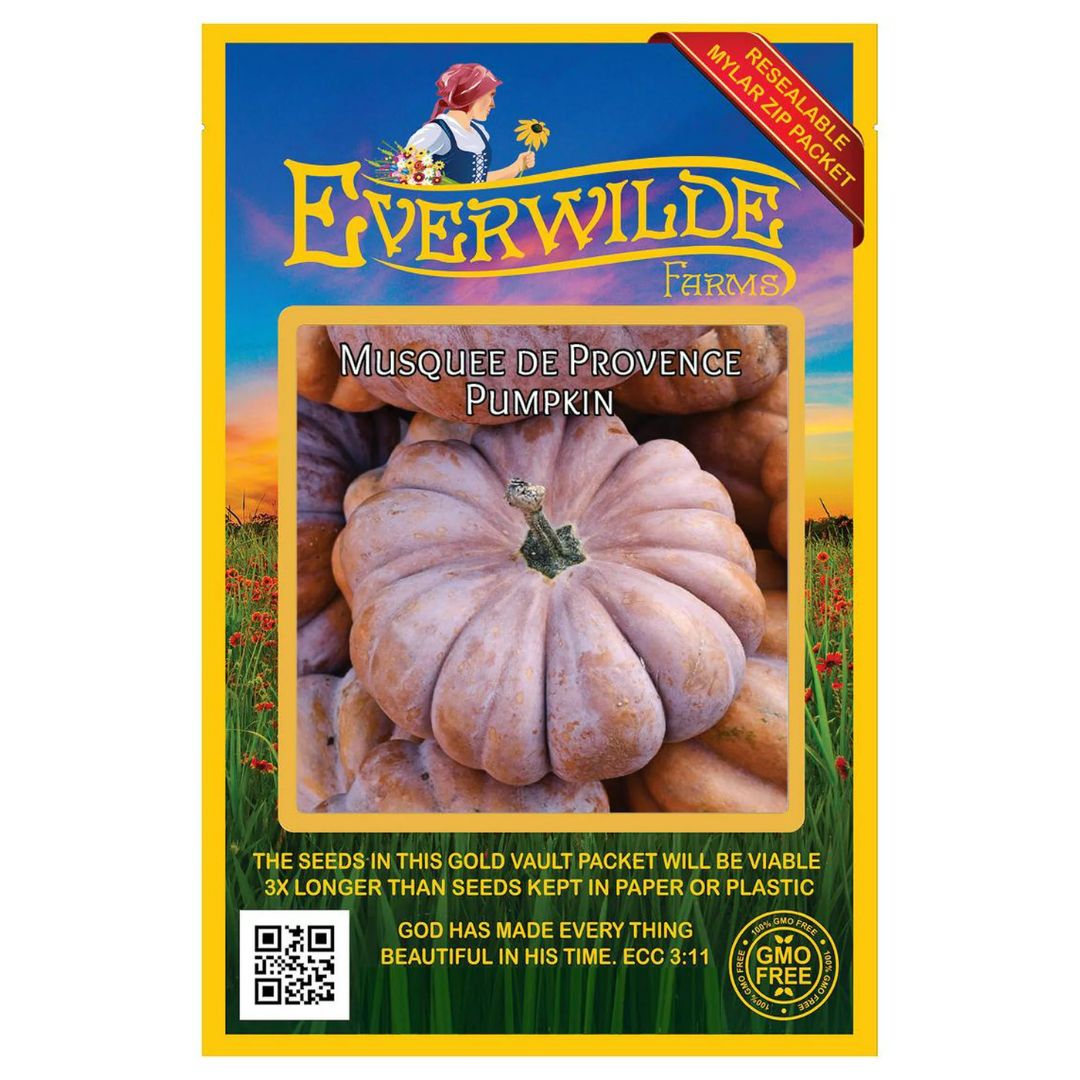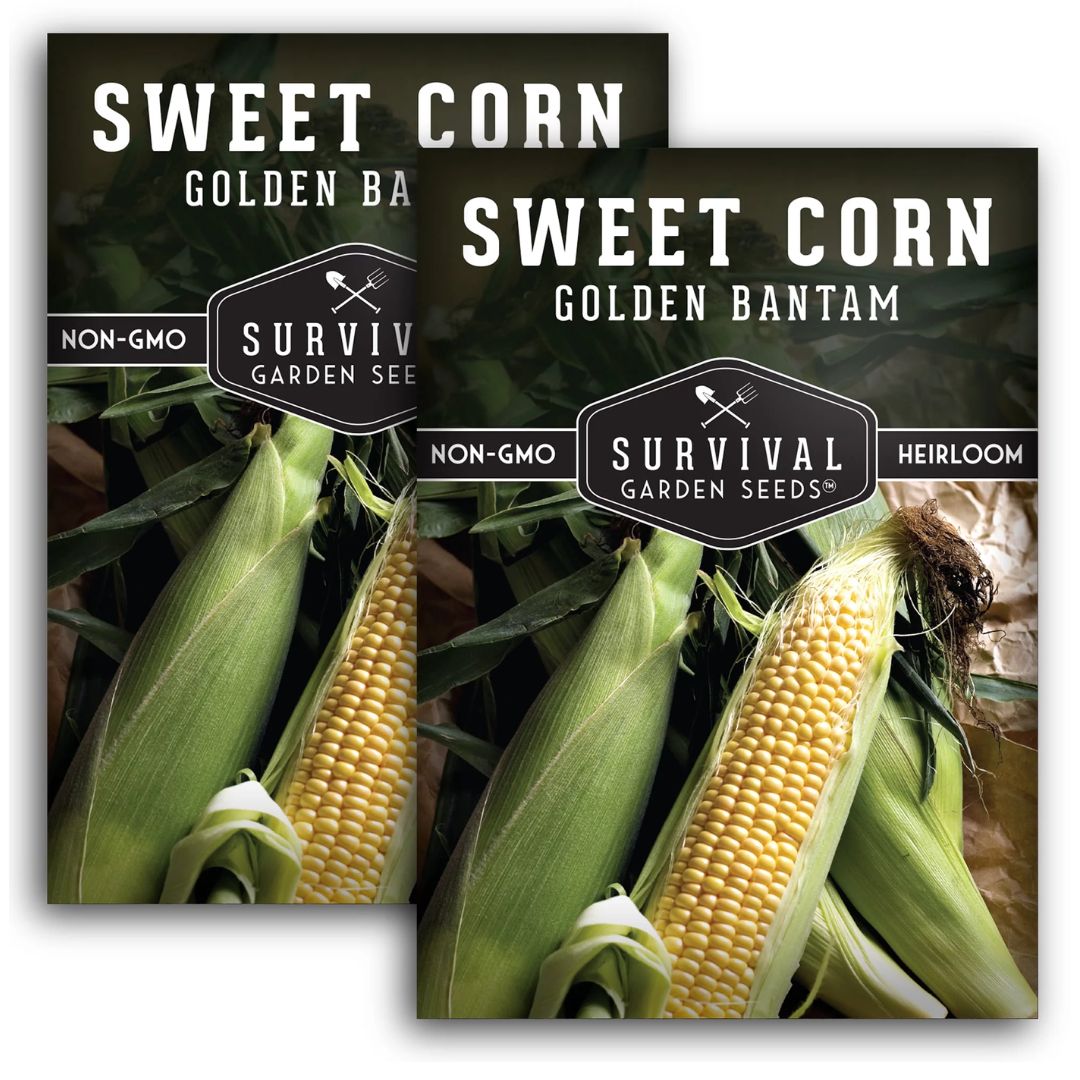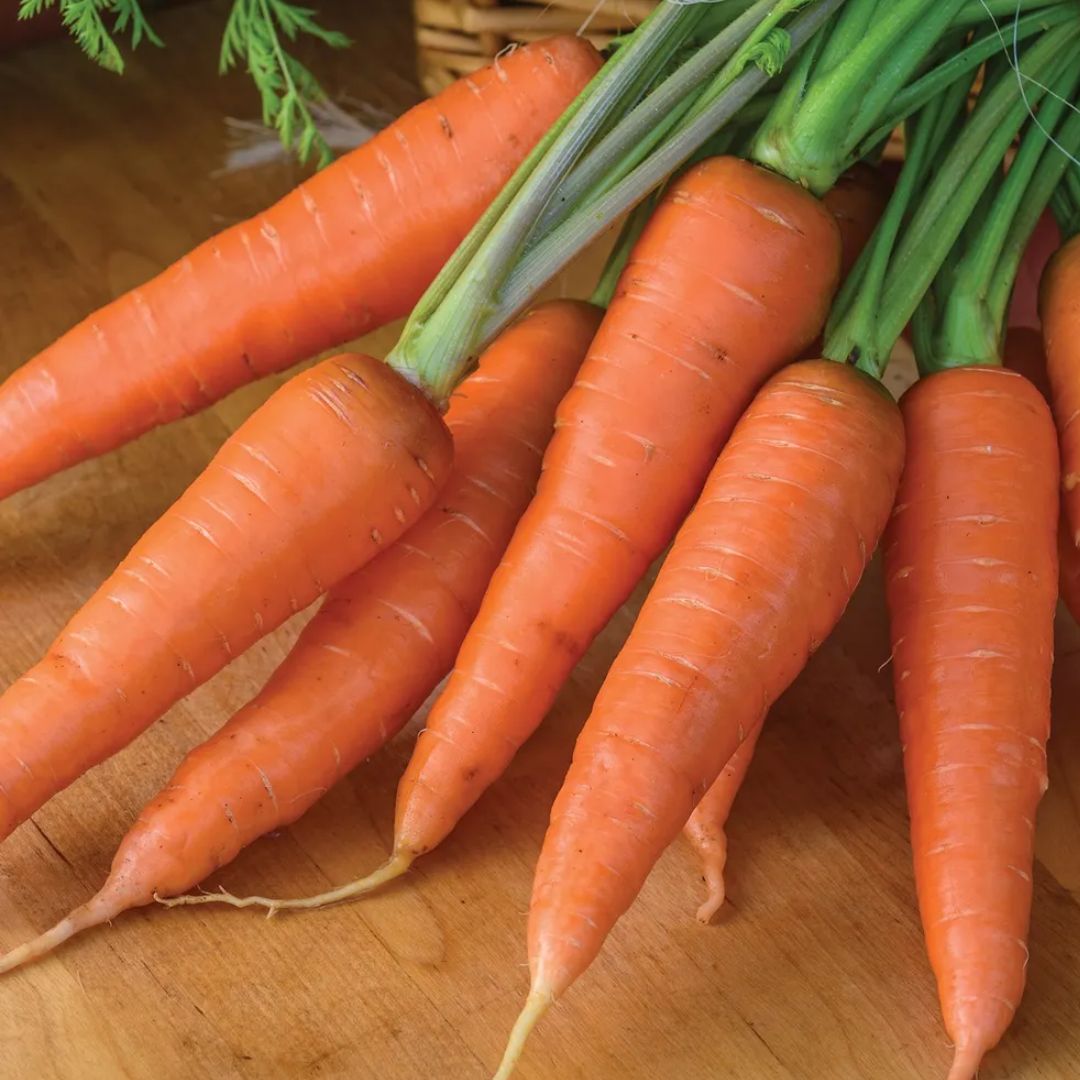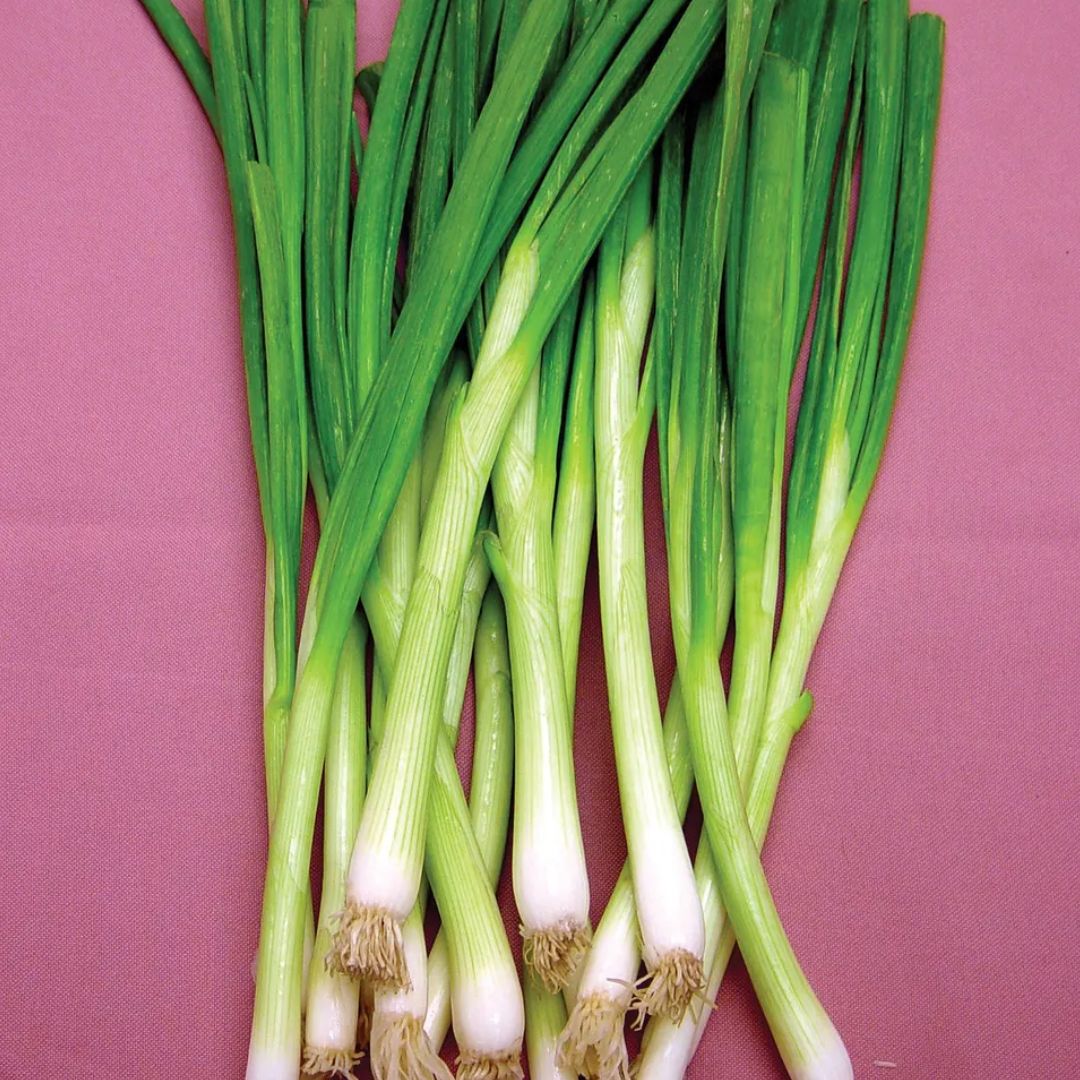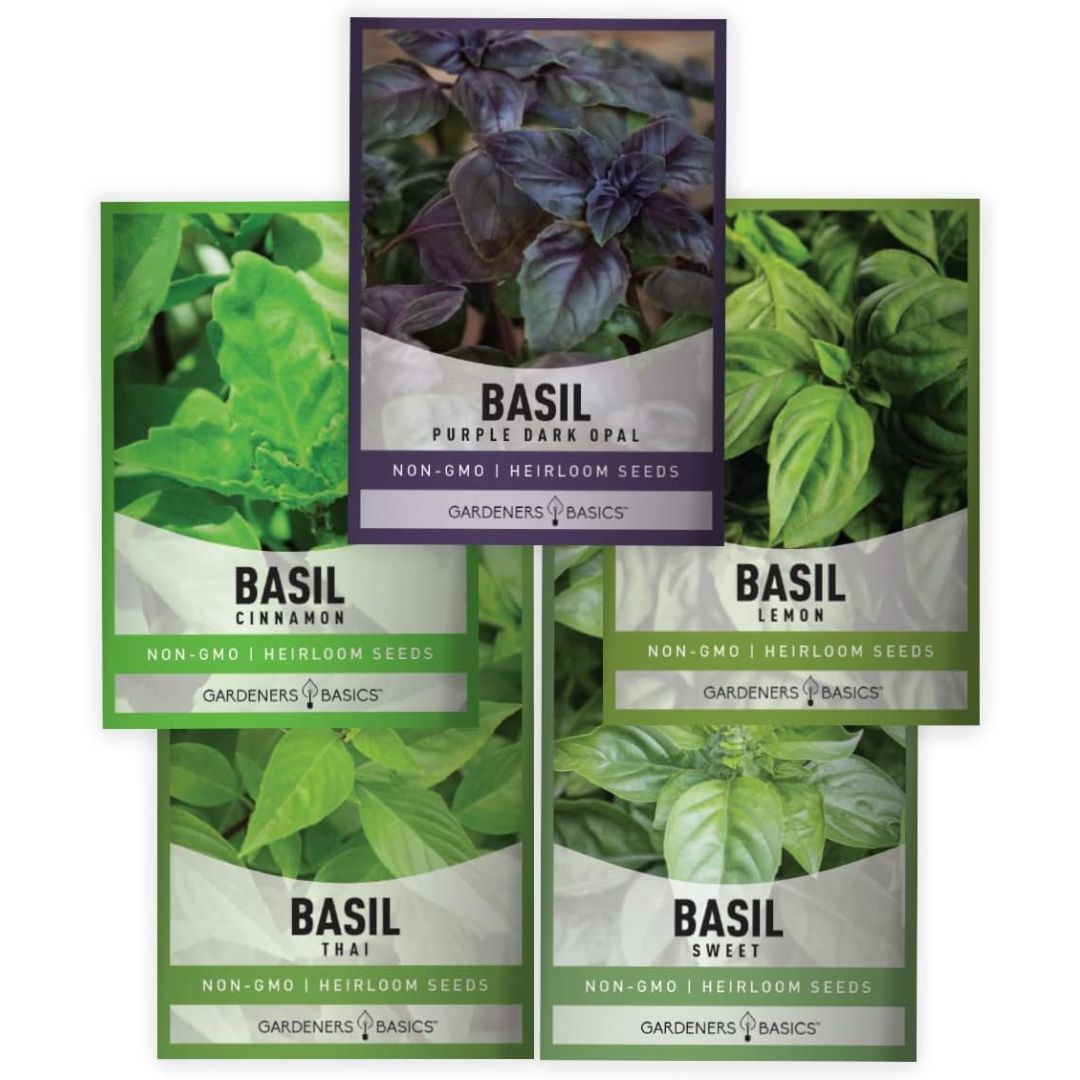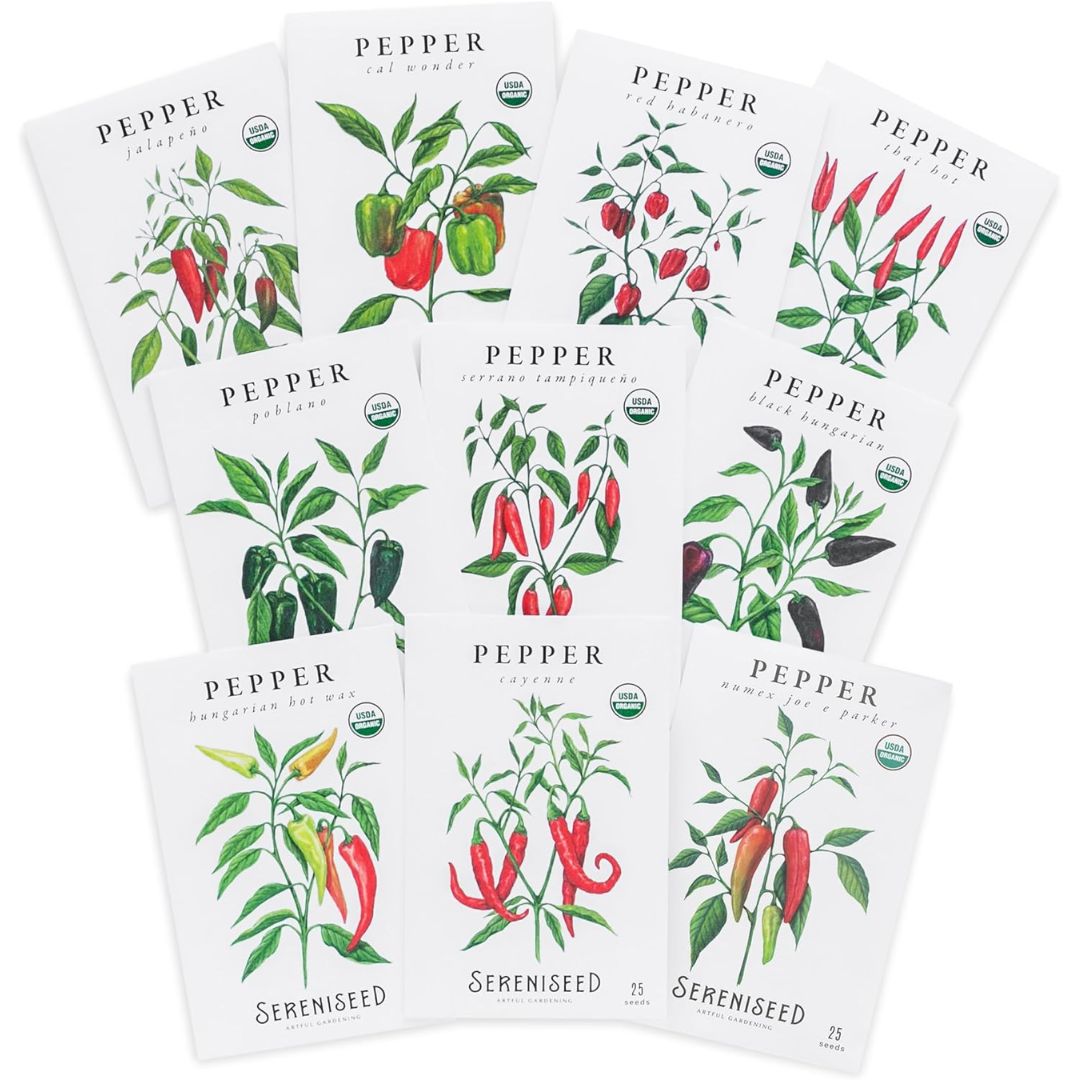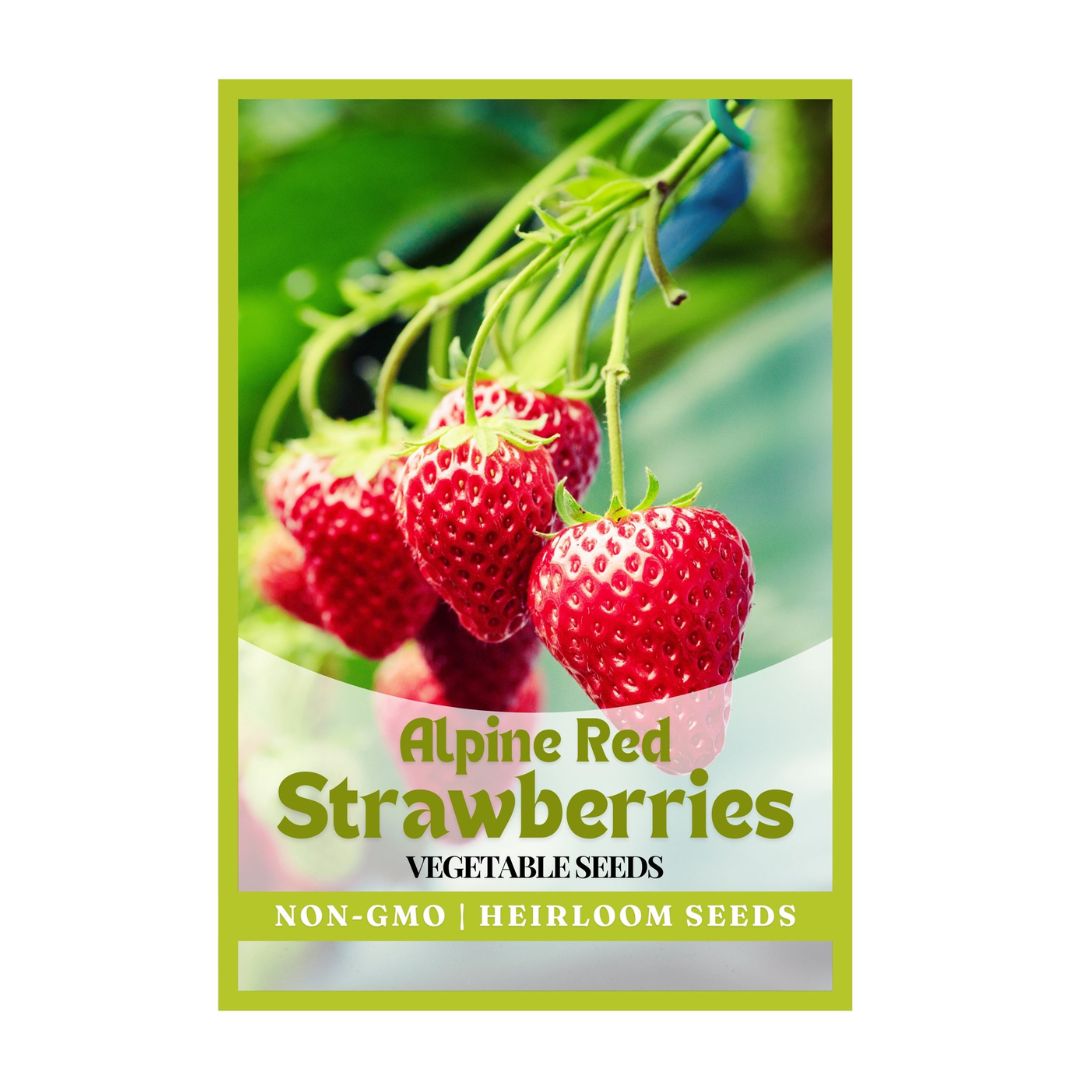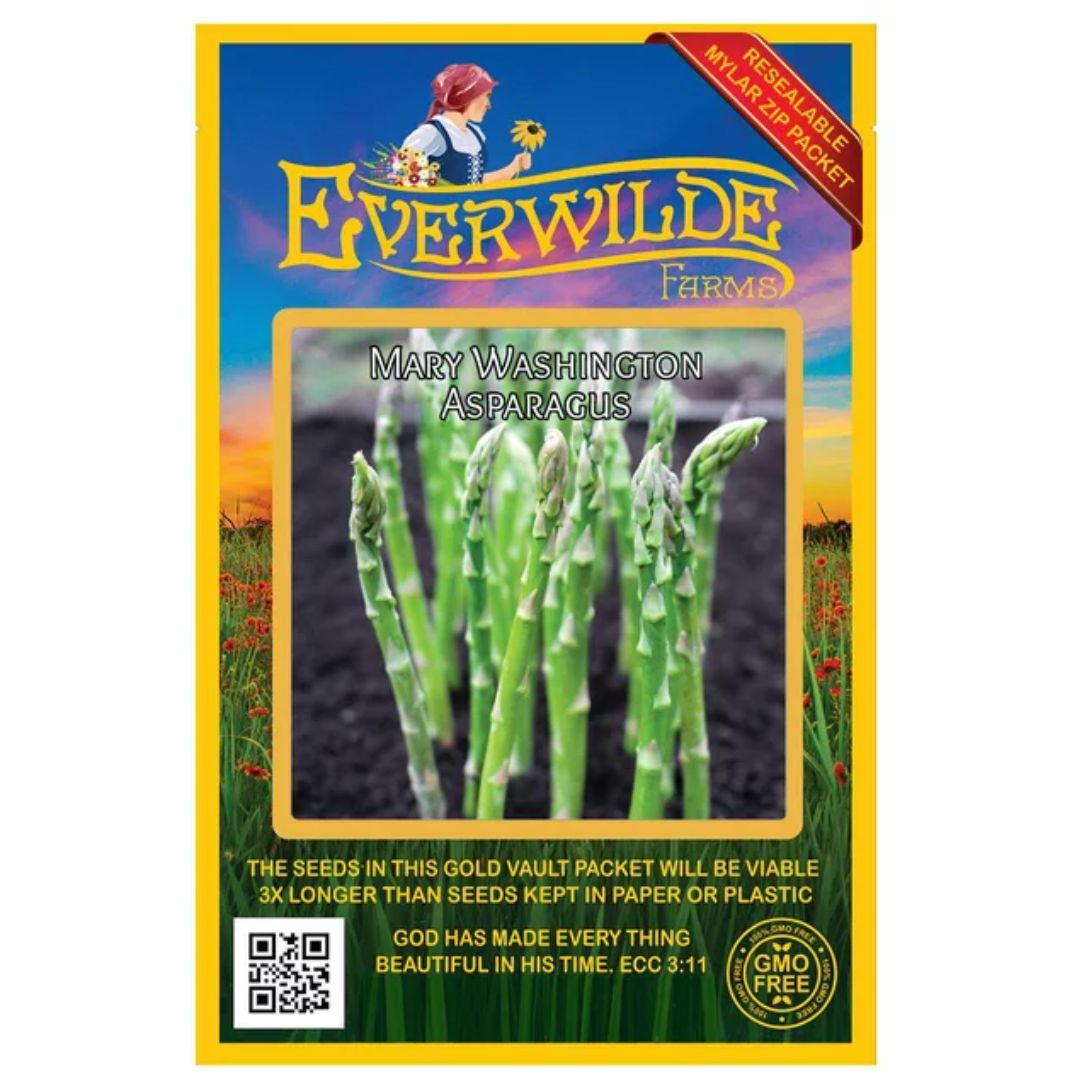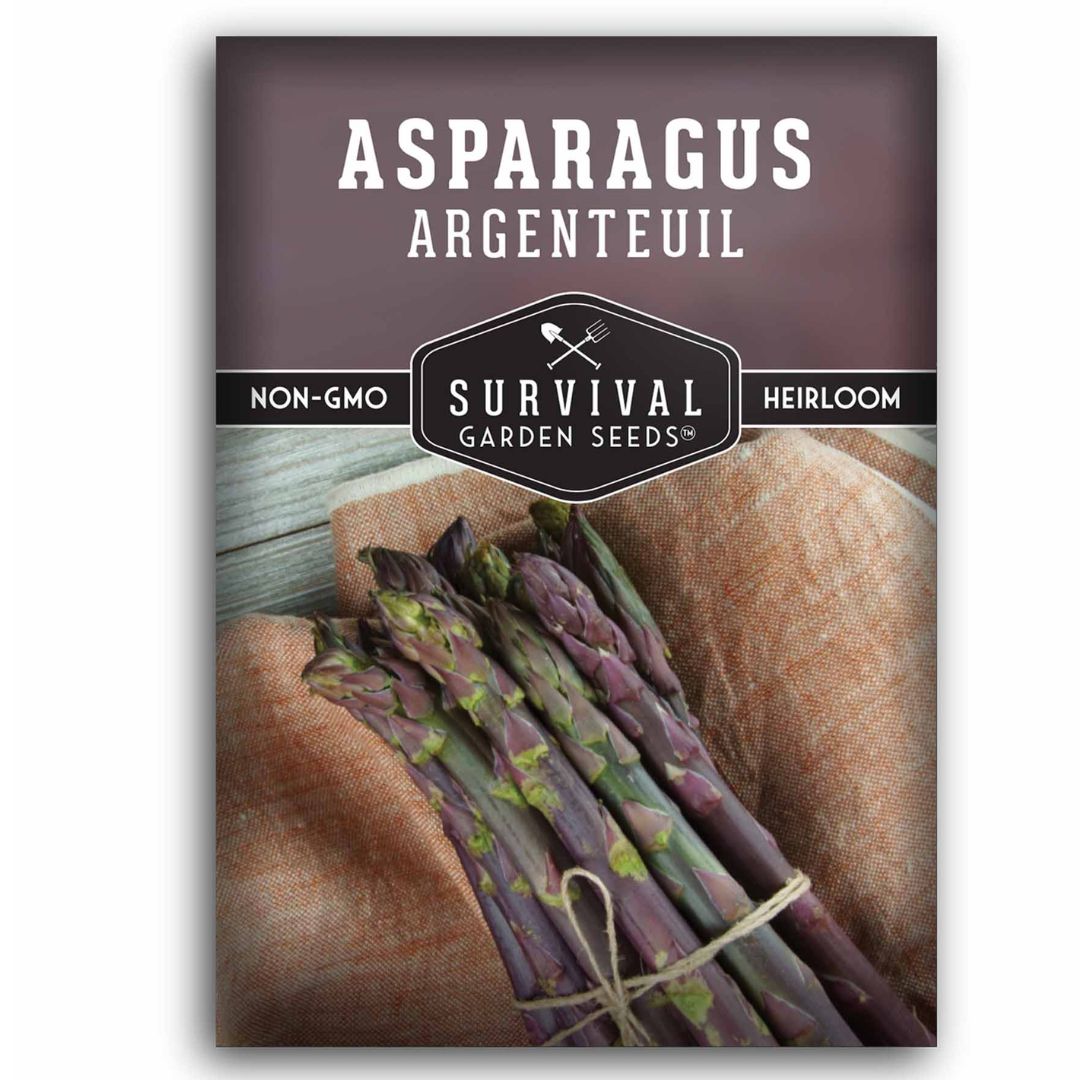10 Pairs of Vegetables You Should Never Plant Together — According to a Horticulturist
Some vegetables, when planted together, work well by limiting damage or disease, but not all plants thrive in close proximity. Here is everything you need to know about which companion crops to avoid in your beds


The Livingetc newsletters are your inside source for what’s shaping interiors now - and what’s next. Discover trend forecasts, smart style ideas, and curated shopping inspiration that brings design to life. Subscribe today and stay ahead of the curve.
You are now subscribed
Your newsletter sign-up was successful
Planting the right vegetables together is a great way to introduce new life and welcome beneficial insects into your backyard — while also keeping those pesky pests at bay. But did you know that planting certain vegetables together can have the complete opposite effect? It can often make way for disease, plant-eating pests and also stunt your plants' growth.
Amy Enfield, Senior Horticulturist at ScottsMiracle-Gro tells us: 'companion planting is selecting plants to grow together that benefit one another rather than compete with one another. It’s all about maximizing the efficiency of your garden. Companion plants usually help deter unwanted pests or weeds, help enrich the soil for another plant, or even provide shade and support. Some people even claim that growing the right plants together can improve growth, increase yield, and improve flavor'.
So, if you want the best out of your vegetable garden, you'll need to keep an eye out for what you plant and where you plant it. If you want to learn more about which vegetable companion plants should you avoid? We've got you covered. Here's what an expert has to say about it.
Vegetable Companion Plants to Avoid
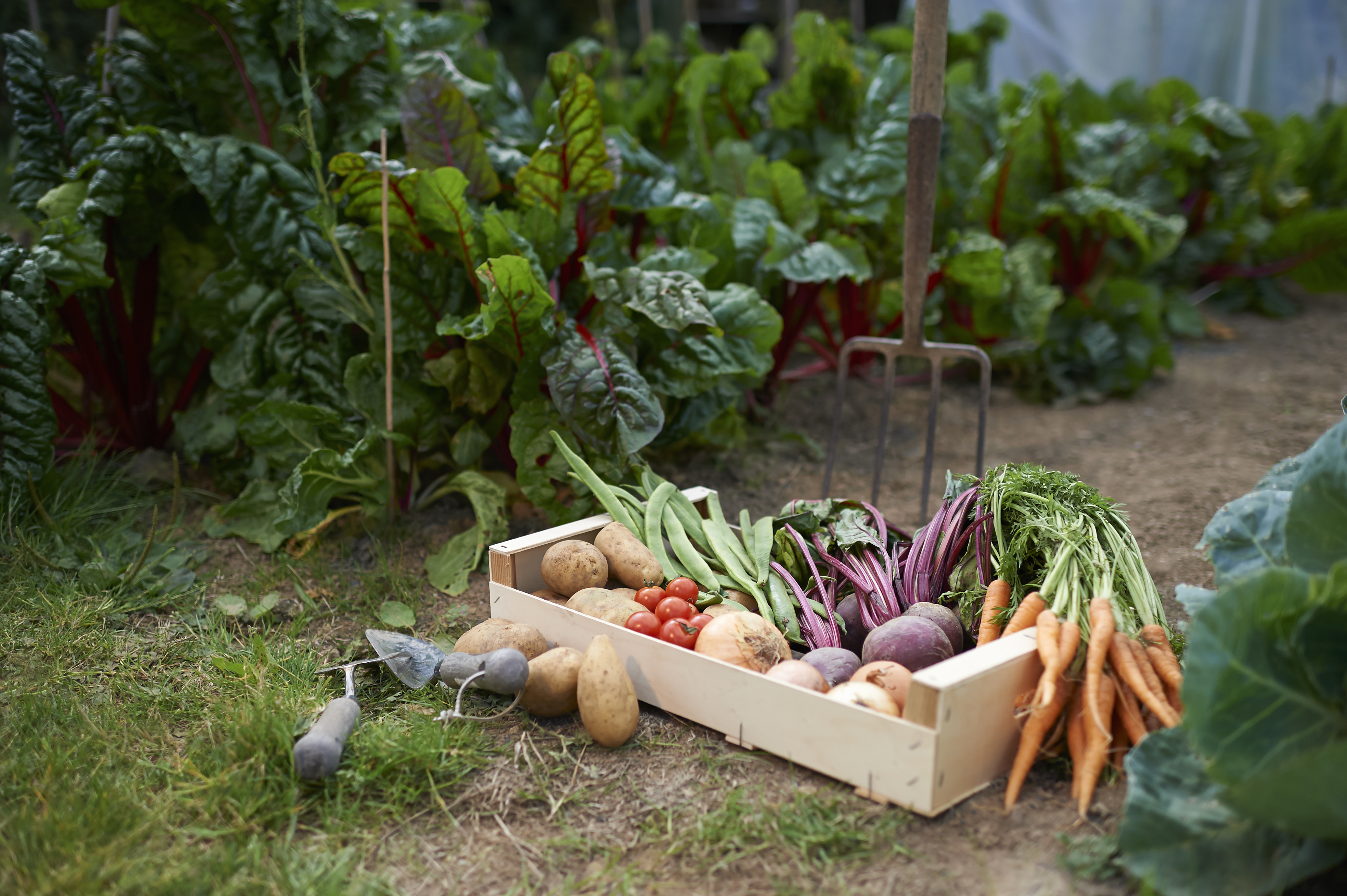
In order to make your vegetable garden look beautiful, you need to make sure you've tended to your plants correctly and chosen the right vegetable companion plants for a healthy and thriving garden bed.
'For example, tomato and basil are good companions,' Amy Enfield, Senior Horticulturist at ScottsMiracle-Gro says. 'The basil repels pests and some people believe it helps increase tomato yields. Another good example of companion planting is sweet corn and pole beans. Legumes, like pole beans, fix nitrogen providing the sweet corn with plenty of nitrogen while the corn stalk provides support for the pole bean to climb'.
However, Amy tells us that not all plants grow well together. Without further ado, here are 10 vegetable pairings that should not be planted together — according to an expert.
1. Tomatoes & Potatoes
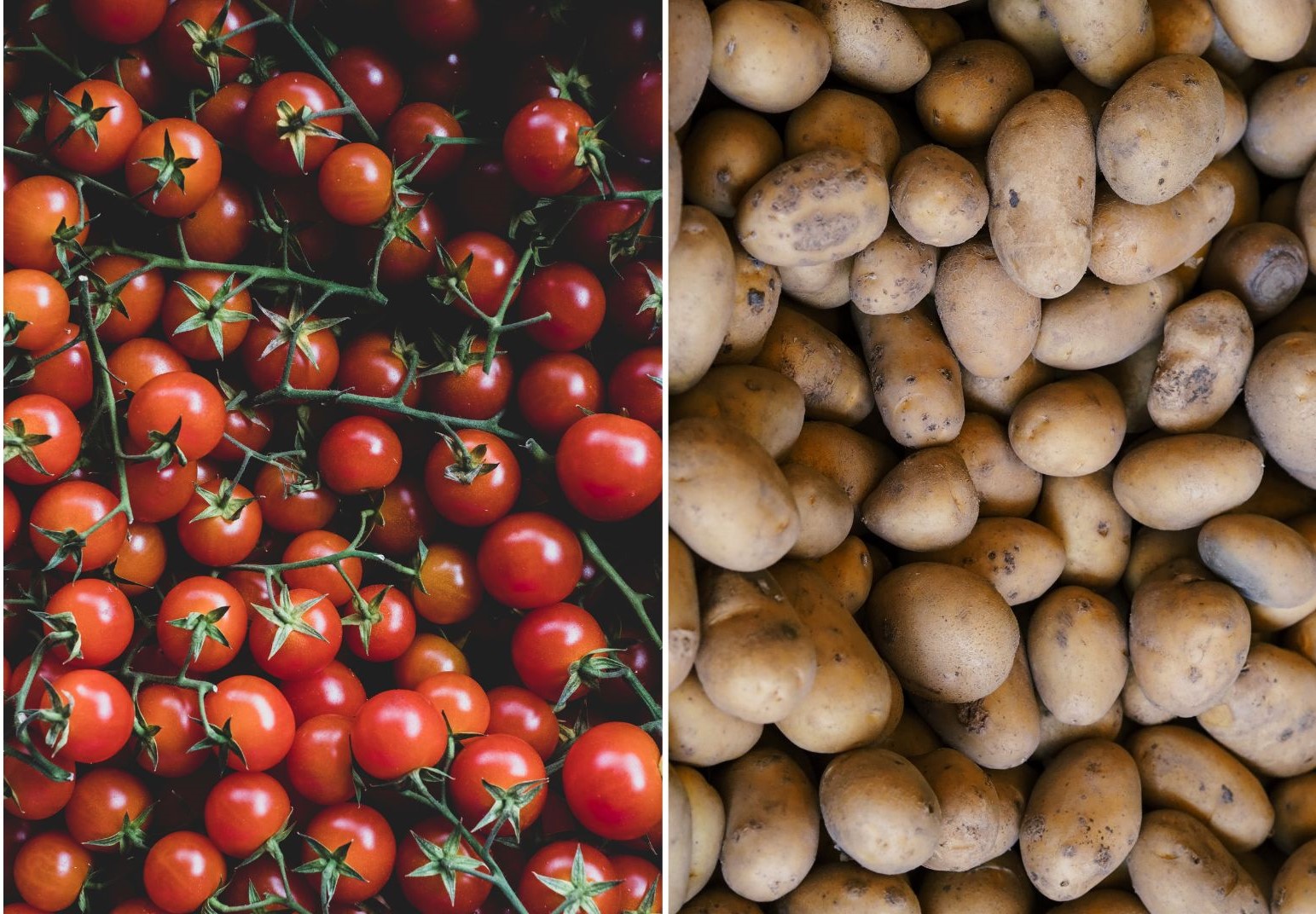
Understanding the best companion plants for tomatoes will grant you a better and more bountiful harvest. But with that being said, you'll need to understand which vegetables do not work well with it.
Amy explains that tomatoes and potatoes do not work well together as 'these two plants are related, and because they are in the same family, the are susceptible to similar pests and diseases'. She says growing them too close together in the garden will allow problems to spread fairly quickly.
The Livingetc newsletters are your inside source for what’s shaping interiors now - and what’s next. Discover trend forecasts, smart style ideas, and curated shopping inspiration that brings design to life. Subscribe today and stay ahead of the curve.
What to plant with tomatoes instead: Basil
Soil type for tomatoes: Well-drained, loamy
Sunlight for tomatoes: Full-sun for 8 hours
2. Onions & Beans

'Beans form a symbiotic relationship with soil bacteria that allow them to fix nitrogen (make is usable for plants),' says Amy. 'Onions emit an antibacterial gas (called allicin) that kills the soil bacteria. Planting onions too close to beans can severely inhibit the growth and health of the bean plants'.
Instead, try companion planting carrots and onions together and you'll watch your vegetables thrive with lots of nutrients and flavor. They're also great vegetables for beginner gardeners to grow.
What to plant with onions instead: Carrots
Soil type for onions: Well-drained, sandy-loam
Sunlight for onions: Full-sun

Amy has over 25 years of experience in the Lawn & Garden industry and has been with ScottsMiracle-Gro for 11 years. She has a BS and MS in Horticulture from Michigan State University and a PhD in Plant & Environmental Sciences from Clemson University. She specializes in live goods research with focus areas in consumer performance, lighting, and ecommerce shippability.
3. Cucumber & Squash
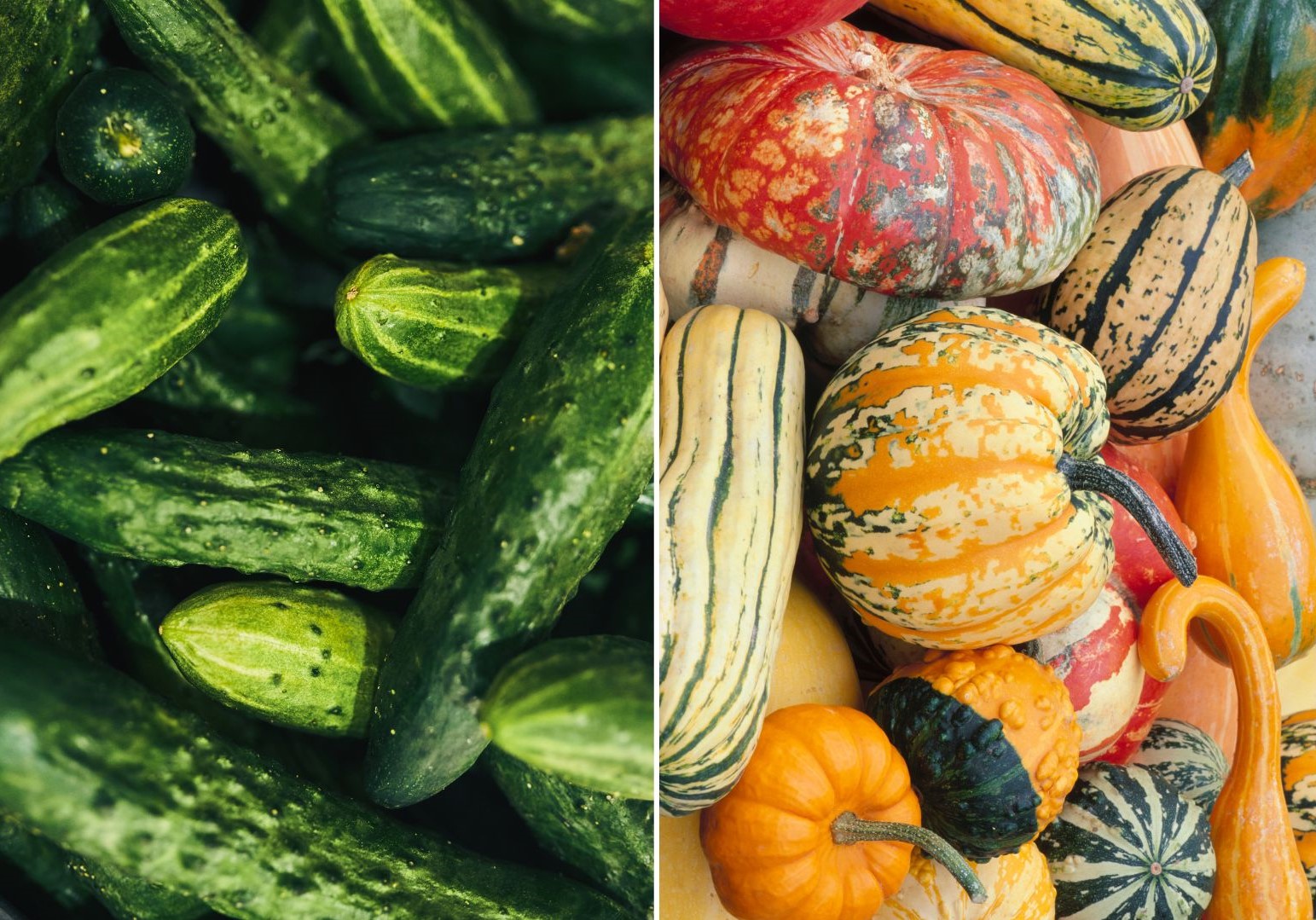
Known as one of the best vegetables for vertical gardening — cucumbers are a great little addition to vegetable beds, but if you're keen to plant these tasty snacks with squash, there may be a few problems.
As these plants are from the same family, Amy says 'they are susceptible to similar pests and diseases, like powdery mildew'. And so, they will 'both need very nutrient-rich soil to grow well, and when planted in close proximity can compete for soil nutrients,' she adds.
What to plant with cucumber instead: Peas
Soil type for cucumber: Well-drained, loose
Sunlight for cucumber: 6-8 hours of direct sun
4. Corn & Tomatoes

If you're looking to start a vegetable garden in your backyard, you'll need to make sure you do your research before hand. The first step is choosing the right plants and soil type, which in turn will grant you a full and thriving yard. So, it is important to understand what vegetable companions to avoid.
Corn and tomatoes are another pairing we should avoid planting together, according to the gardening expert. Amy explains this is due to both plants being heavy feeders, which leads to them competing for soil nutrients when planted close together.
'Corn stalks also grow tall which can shade tomato plants further inhibiting their growth,' Amy adds.
What to plant with corn instead: Beans
Soil type for corn: Well-drained, fertile
Sunlight for corn: 6-8 hours of full sun
5. Potatoes & Zucchini
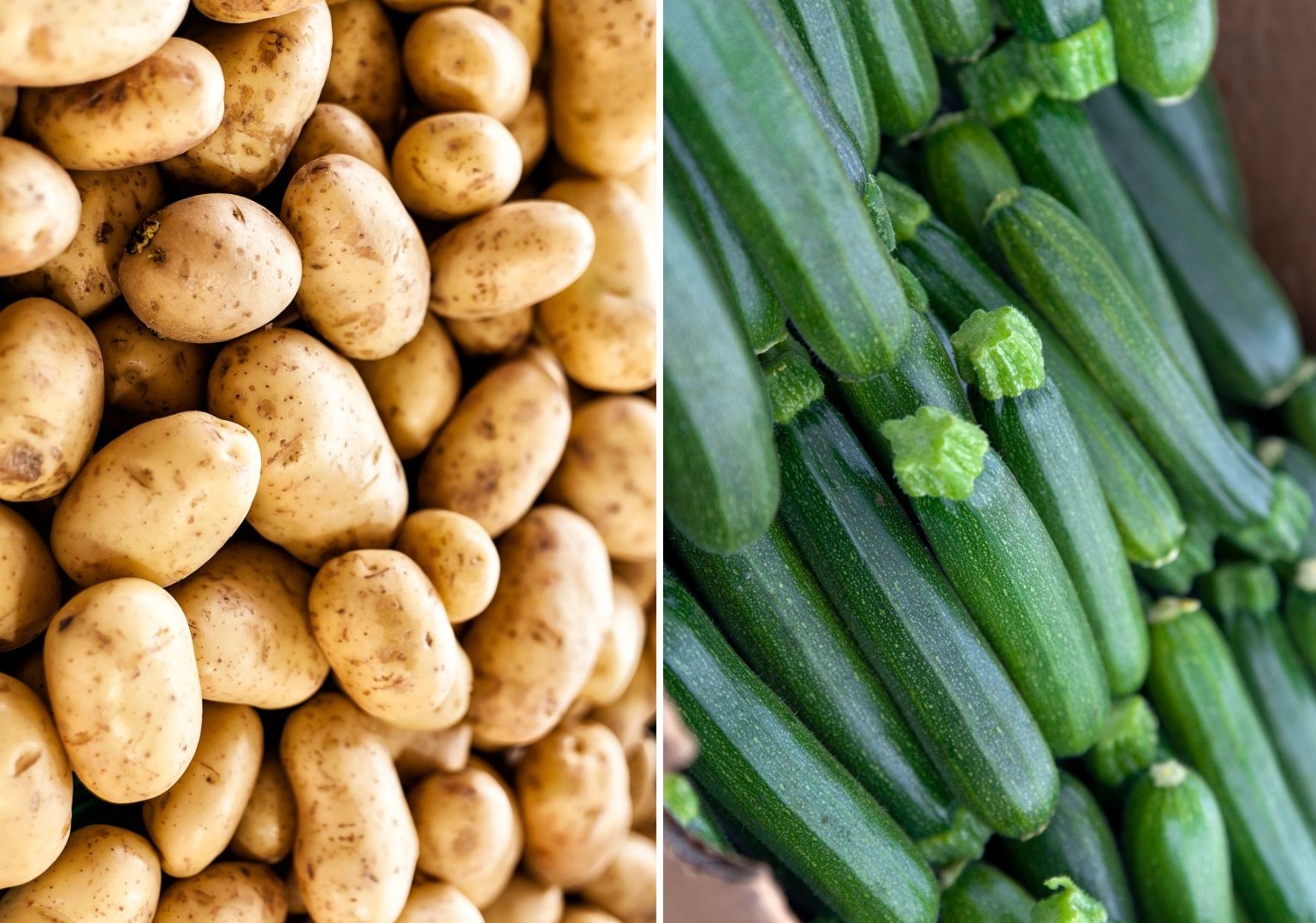
Whether you're looking to grow potatoes in containers or you want add zucchini into your vegetable garden, it is important to keep the two of these much-loved veggies separate as they aren't too fond of one another.
'When both plants are fast growers and heavy feeders, as with these two plants, harvest yields can be drastically affected,' Amy explains 'Potato tubers end up small and malformed while the zucchini plants have stunted growth and reduced yield'.
What to plant with potatoes instead: Leeks
Soil type for potatoes: Well-drained, sandy
Sunlight for potatoes: 6-8 hours of full sun
6. Pumpkin & Summer Squash
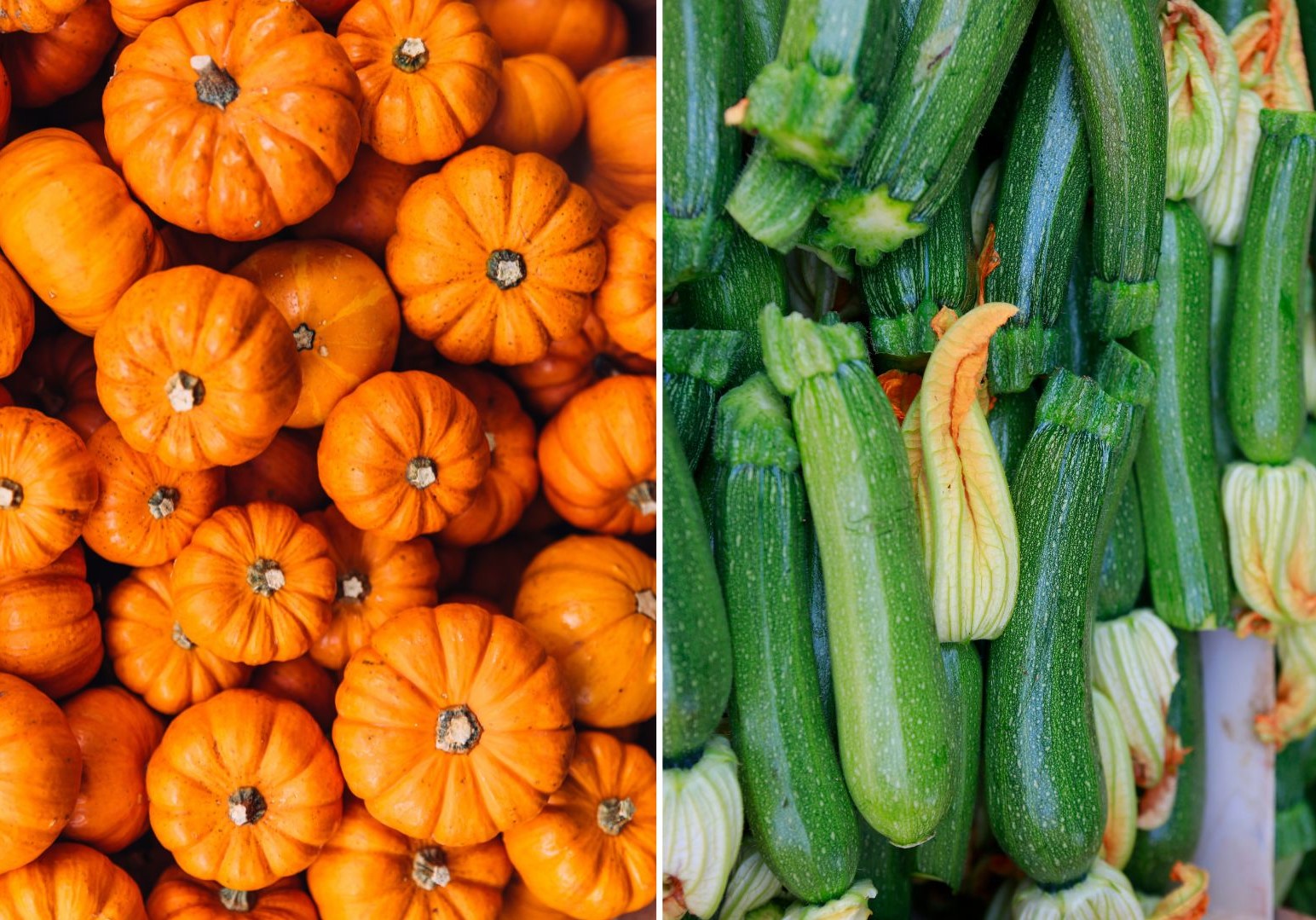
If you want to keep a pumpkin from rotting, the first step is to not plant it near summer squash vegetables such as zucchini — as this can lead to many problems.
Amy says this is because 'these two plants are related, they share the same pest and disease problems like powdery mildew and squash vine borers'.
What to plant with pumpkin instead: Corn
Soil type for pumpkin: Well-drained, fertile
Sunlight for pumpkin: 6 hours of direct sun
7. Carrot & Dill
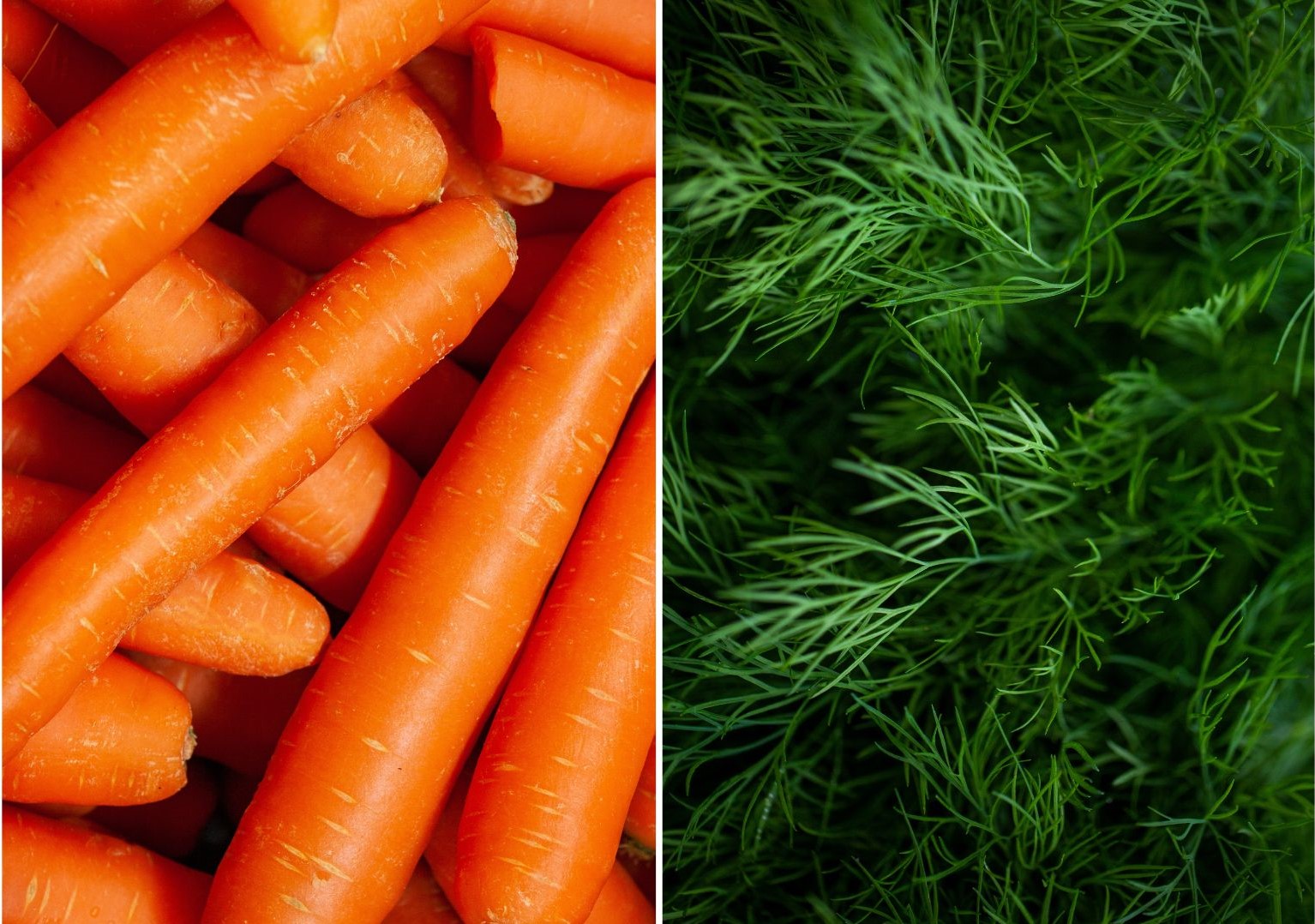
For all your modern vegetable garden needs, carrots and dill are a great addition to add aroma and color into your backyard — but only if they are not planted together.
As these plants are from the same family, Amy says they can also share the same pest problems. 'Dill attracts the carrot fly whose larvae can very quickly destroy a crop of carrots,' she adds.
What to plant with carrots instead: Scallions
Soil type for carrots: Well-drained, sandy
Sunlight for carrots: 8-10 hours a day
8. Cucumber & Basil
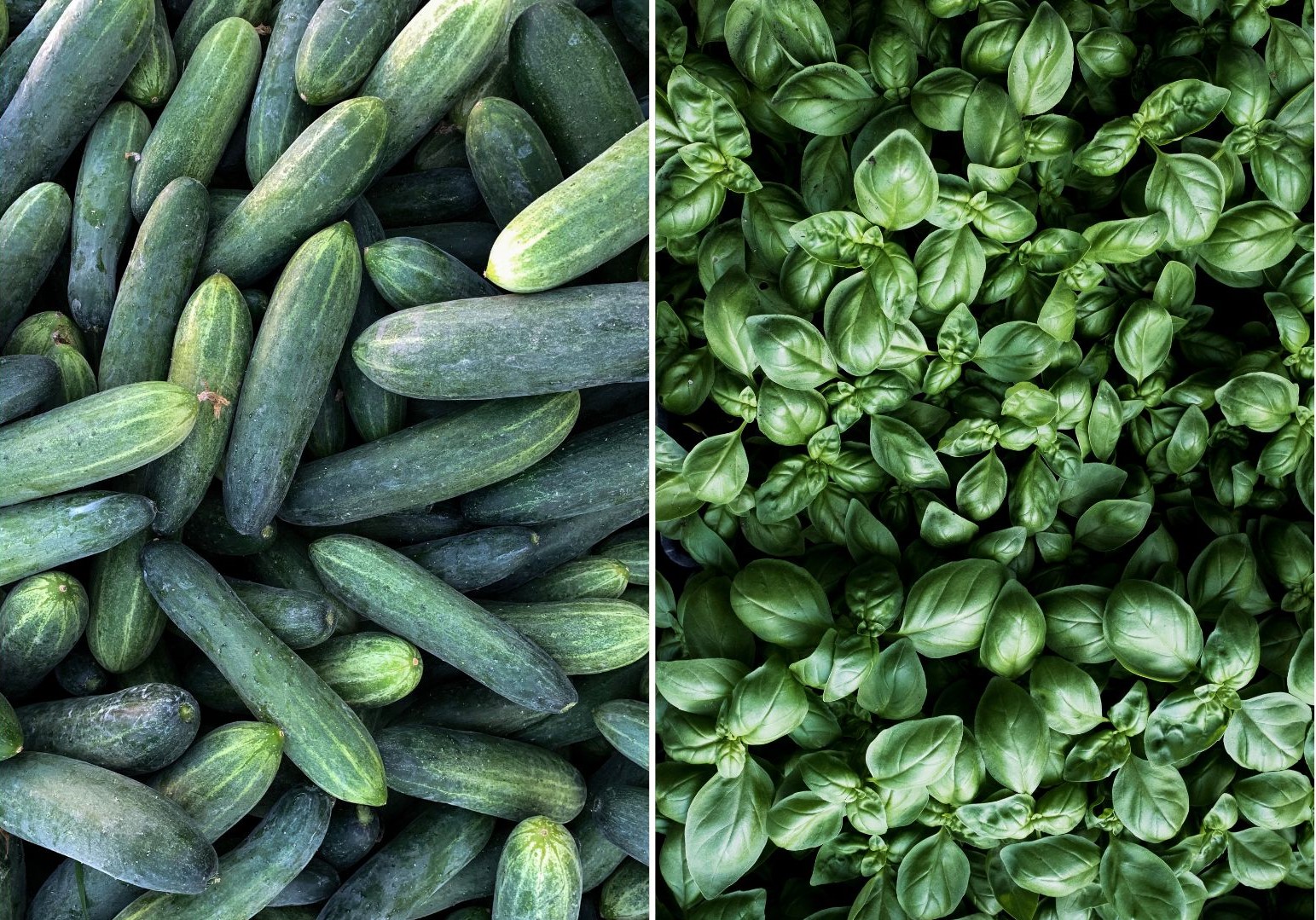
Whether you're looking to elevate your herb garden ideas or just want to expand your vegetable garden with the right herbs, basil and cucumber are not the best of friends when it comes to flavor it seems
Amy tells us: 'Since cucumbers are mainly water, they can take on the flavor of their environment. Aromatic herbs, like basil, can do two things when grown next to cucumbers — they reduce cucumber yield and can even make the cucumbers taste a little spicy.'
What to plant with basil: Peppers
Soil type for basil: Well-drained, loamy
Sunlight for basil: 3-6 hours of partial sun
9. Strawberries & Brassica
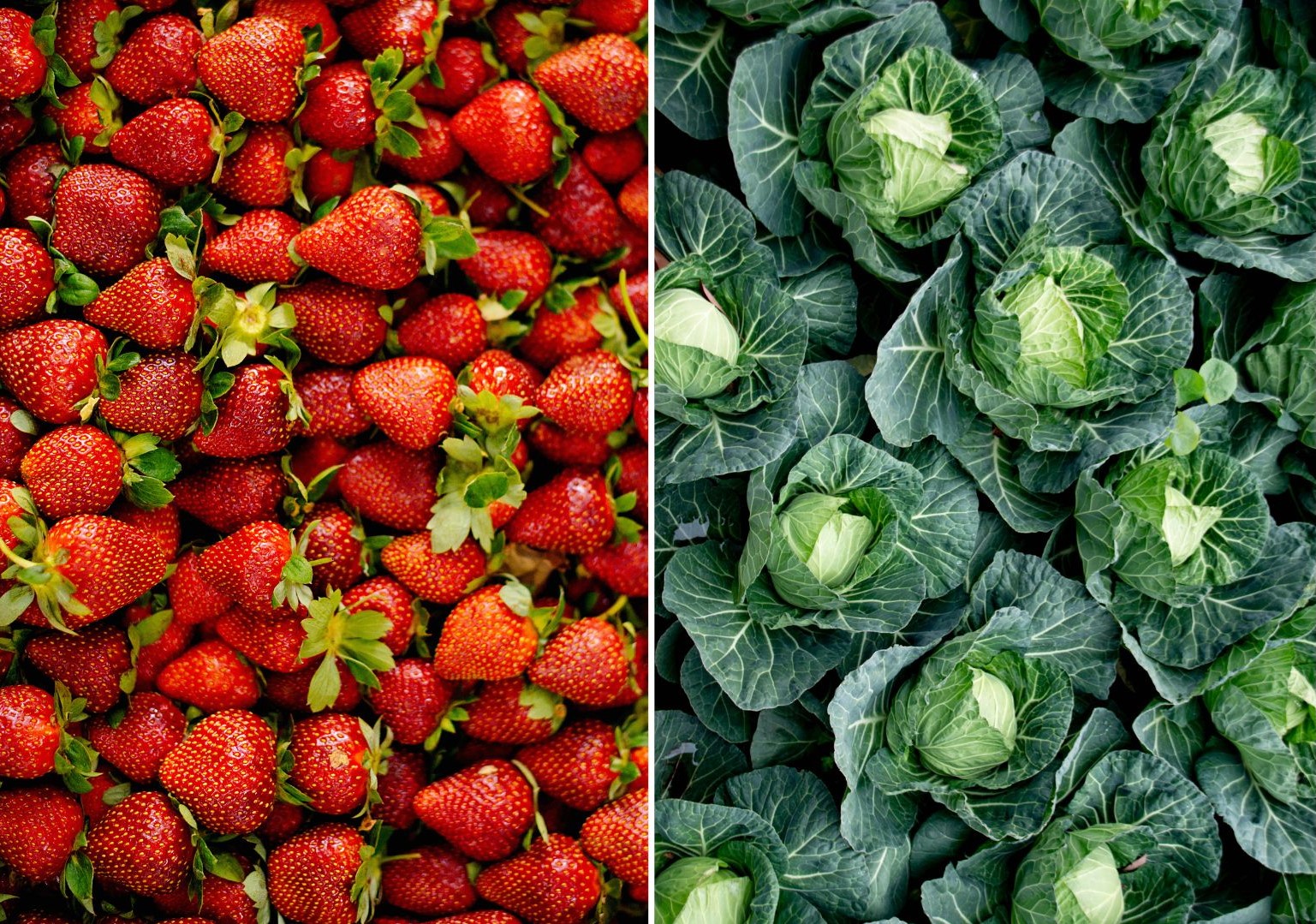
It's best to avoid planting strawberries and brassica such as broccoli and cabbage together.
'Brassicas are often targeted by cabbage loopers which feed on the plants leaving them covered in holes,' Amy tells us. 'But cabbage loopers aren’t picky eaters and also have a fondness for strawberries. When these plants are grown close together, the strawberry plants are more likely to develop a looper infestation.
Did you know that brassicas love being lavender as companion plants? So why not add this ultra-fragrant herb into your backyard with your delicious vegetables instead?
What to plant with Strawberries: Asparagus
Soil type for strawberries: Well-drained, sandy loam
Sunlight for strawberries: At least 8 hours of direct sun
10. Asparagus & Alliums
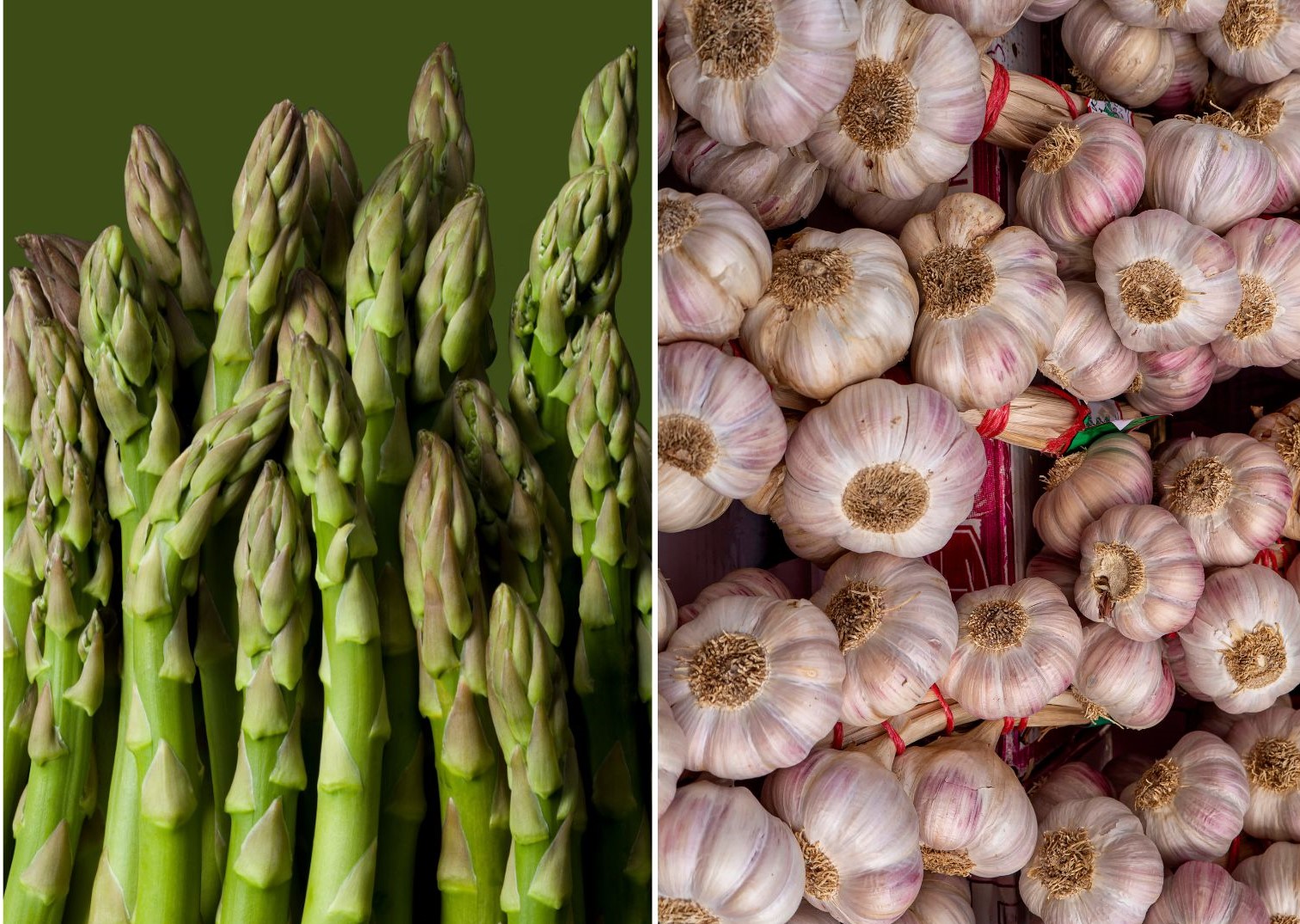
When learning about when you should plant asparagus, it's ideal to note down what works well with this vegetable. In this case, Amy says we should avoid alliums such as garlic and onions with this nutritious veggie.
She tells us: 'While garlic and onions are great to plant in the garden because their strong scent naturally repels many pests, they don’t mix with asparagus. They inhibit the growth of asparagus, they compete for growing space below ground, and when alliums are harvested, the perennial roots of asparagus can be disturbed or damaged inhibiting future growth'.
What to plant with asparagus: Basil
Soil type for asparagus: Well-drained, sandy
Sunlight for asparagus: At least 8 hours of full sun
Before you start your companion planting journey, it's important to understand what it is and what it entails. Gardening expert, Tony O'Neill from Simplify Gardening tells us: 'Companion planting is the practice of growing different plants together in a way that they mutually benefit each other'.
Tony says some of the benefits include: 'natural pest control, for example, planting marigolds with tomatoes to deter nematodes. Another benefit is Improved plant growth such as planting basil with tomatoes to enhance flavor. Lastly, better use of garden space — like planting fast-growing radishes with slower-growing carrots'.

Faiza is the Renovation Editor at Livingetc. She previously worked for The Independent as a News Feature Writer, where she crafted lifestyle, entertainment, and news stories. She also worked as an Audience Editor for the newspaper for almost two years. Thriving in the busy newsroom, Faiza also spent her time crafting stories for Sky News as an SEO reporter, where she produced stories based on trending topics. Lifestyle and interior design have been areas of interest for her for some time, and as she advances in this field, she will continue to refine her skills in all aspects of design. Faiza has a background in SEO, social media, and reporting. Her passion for writing goes beyond her work as she loves all things poetry and creative writing.
